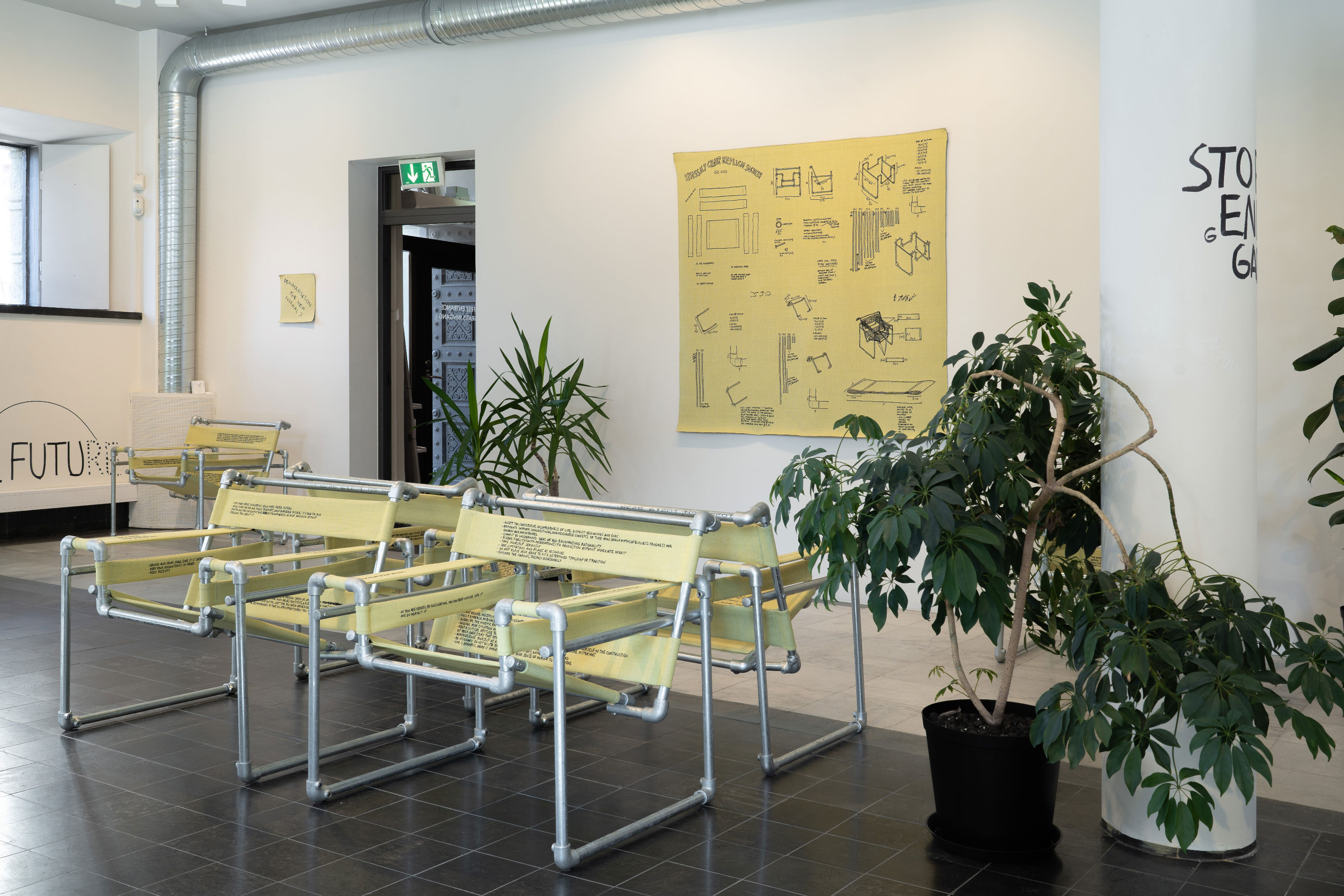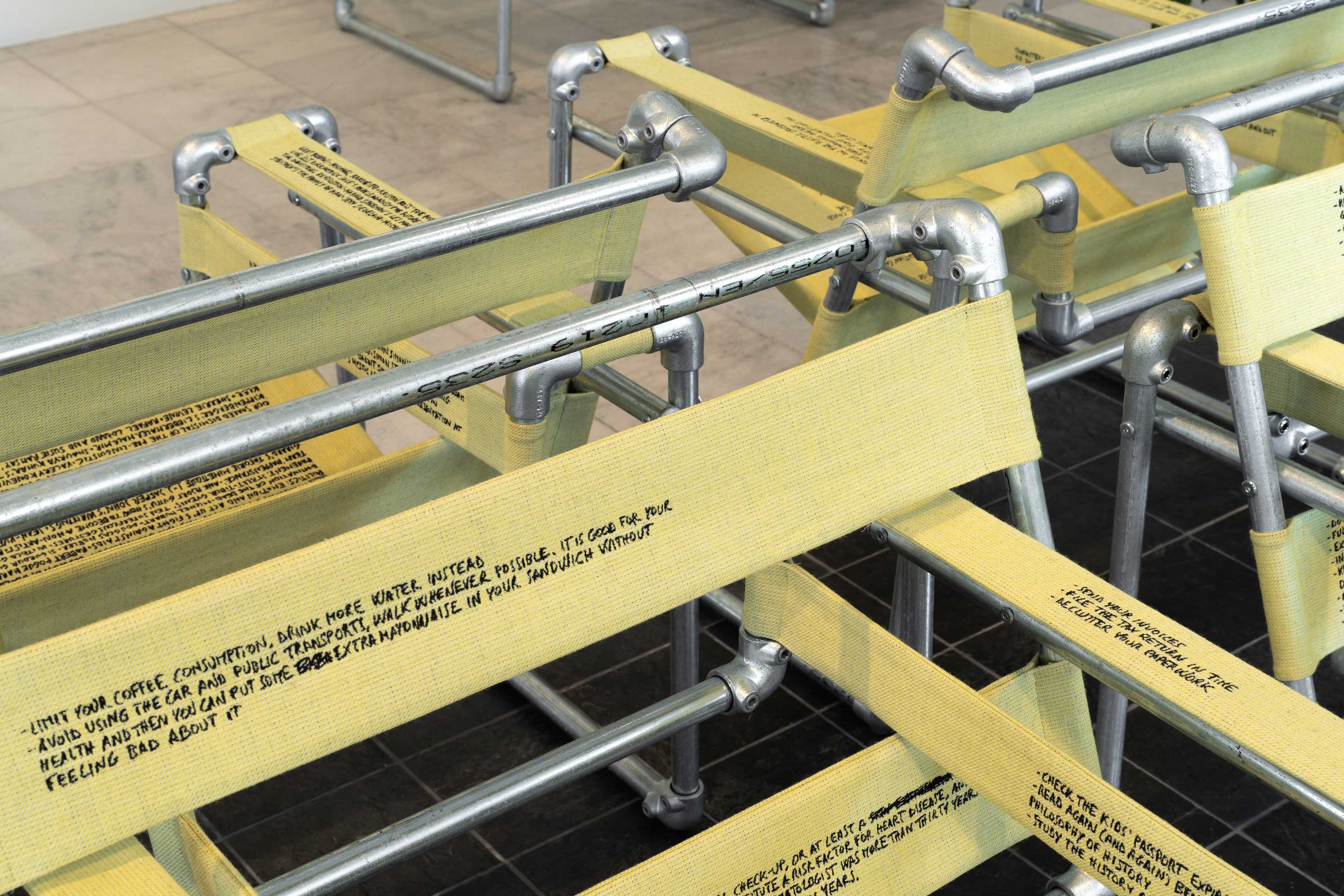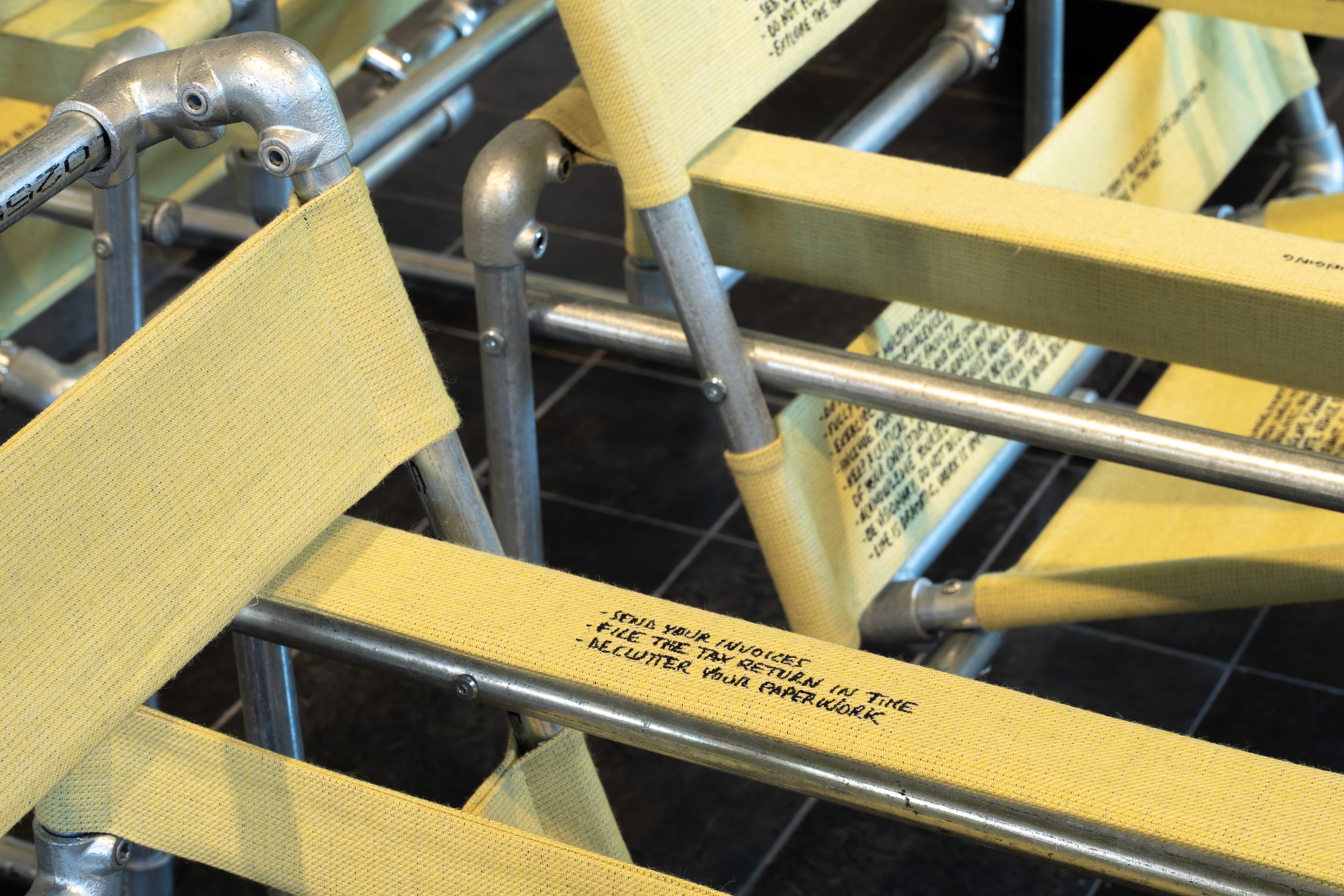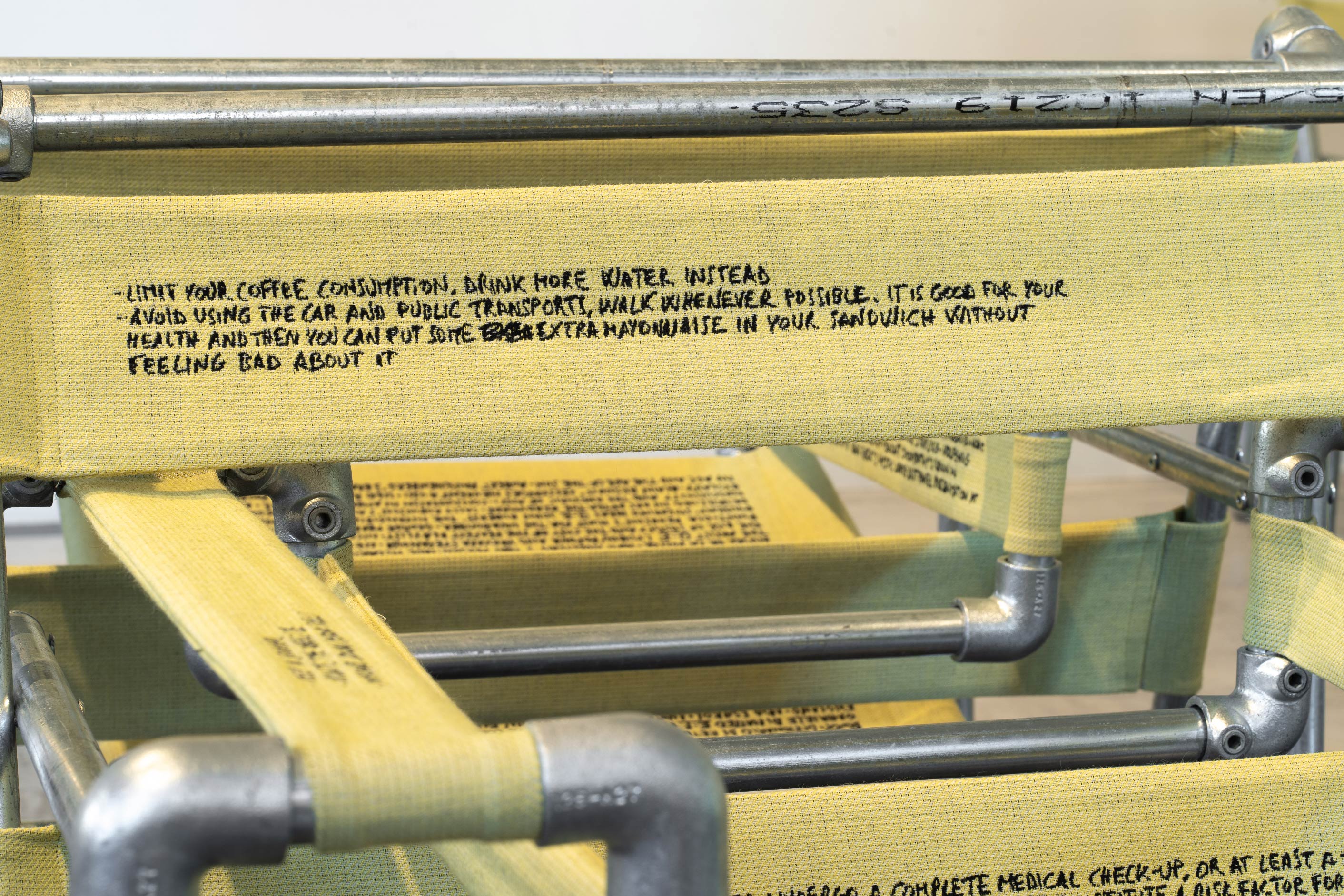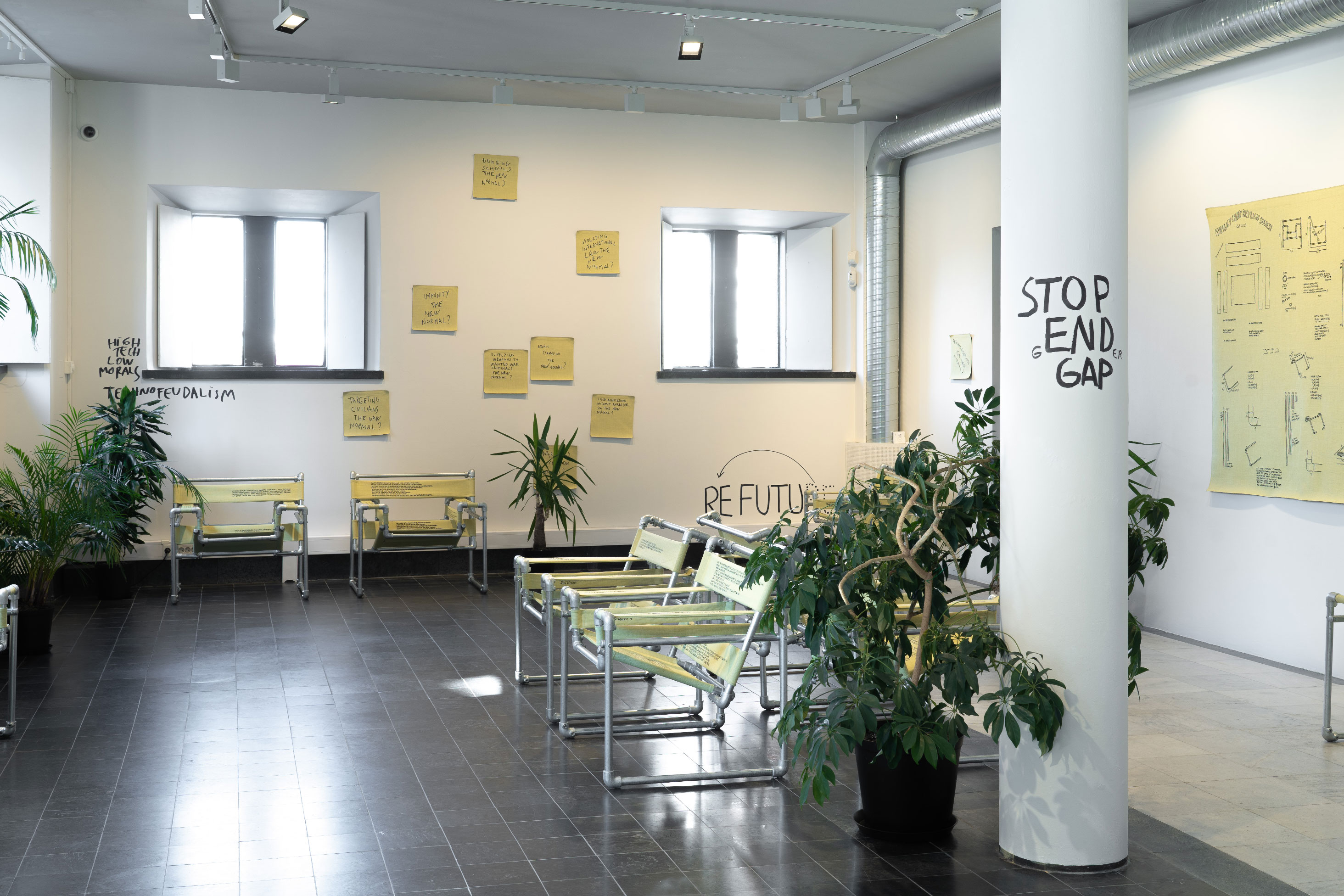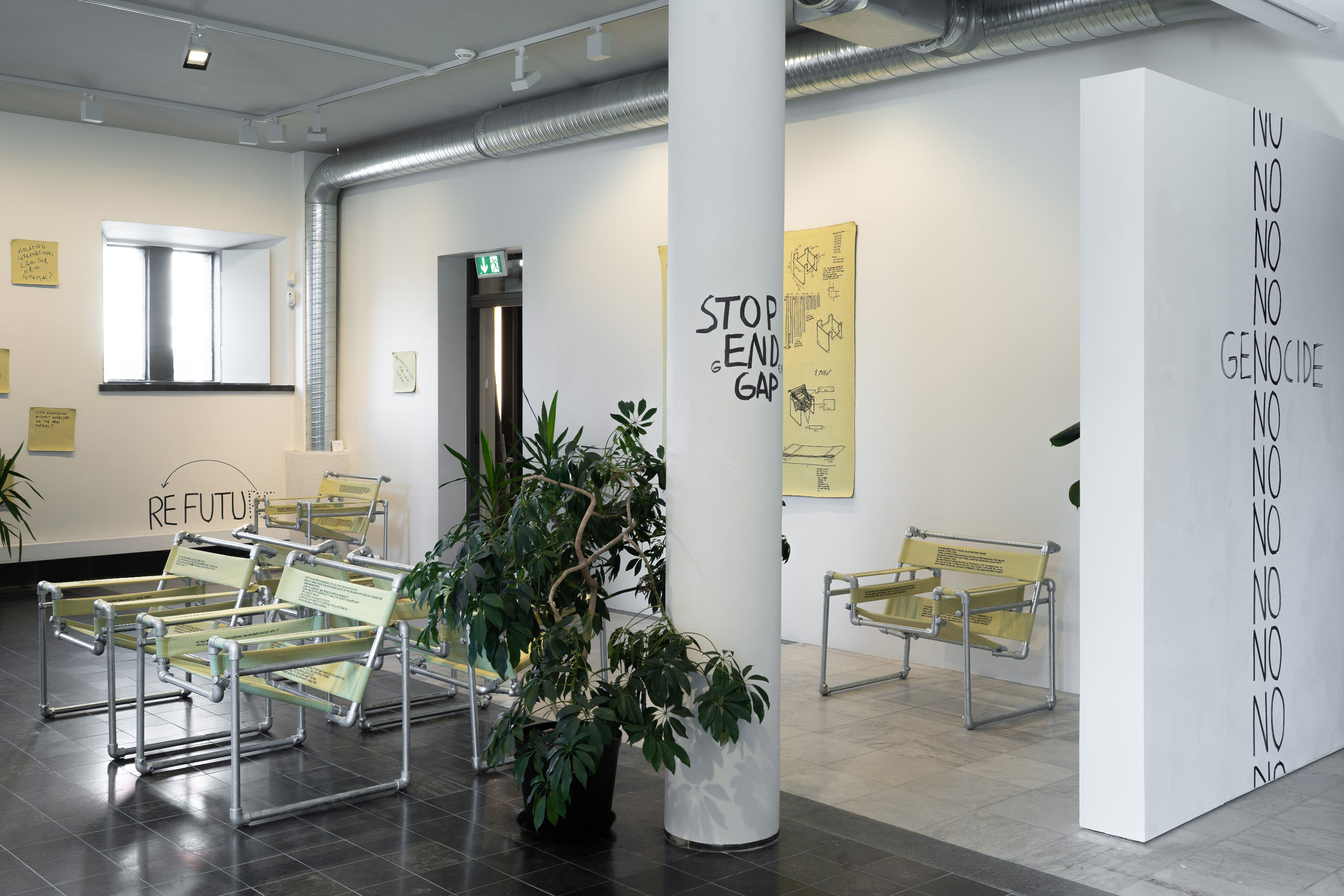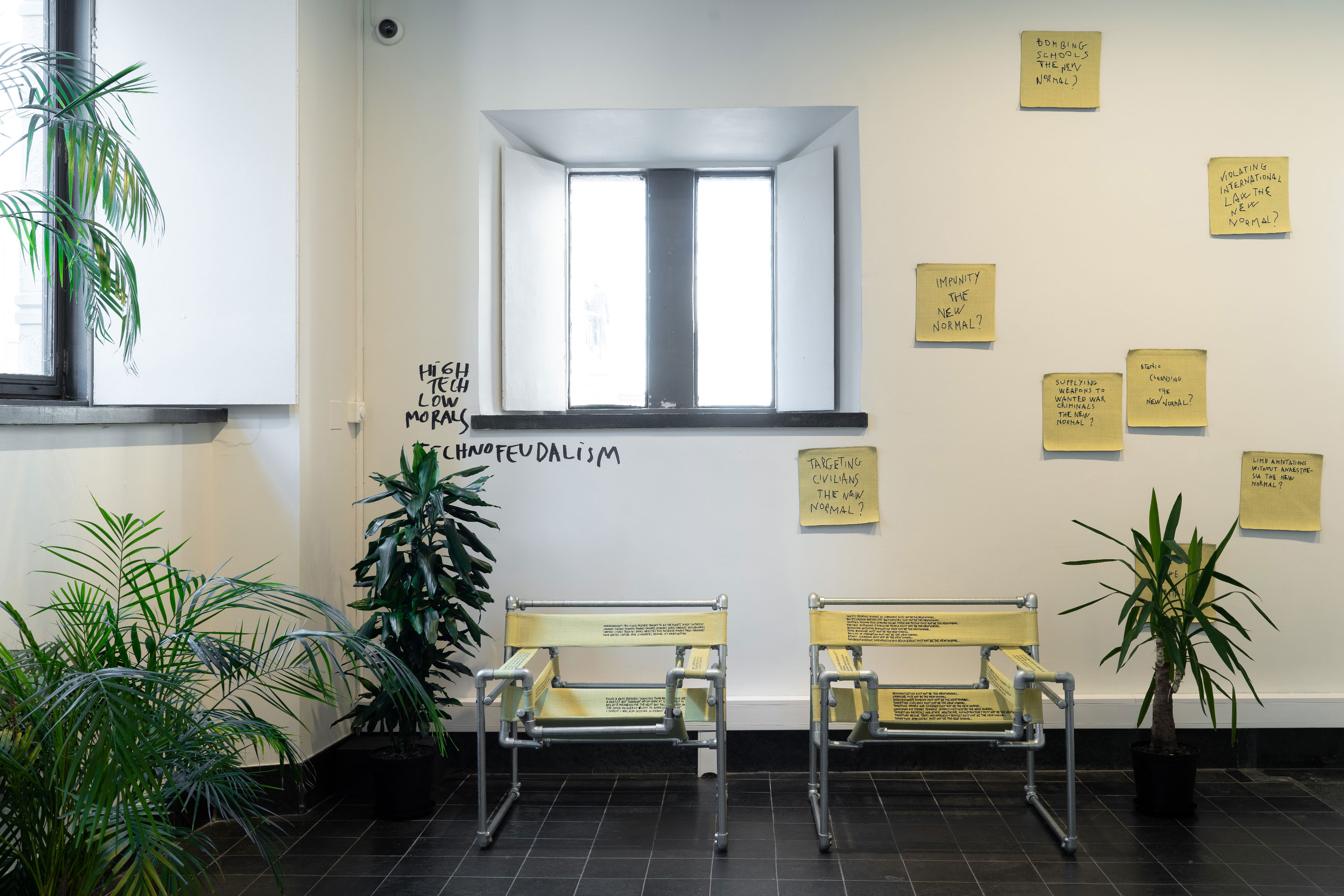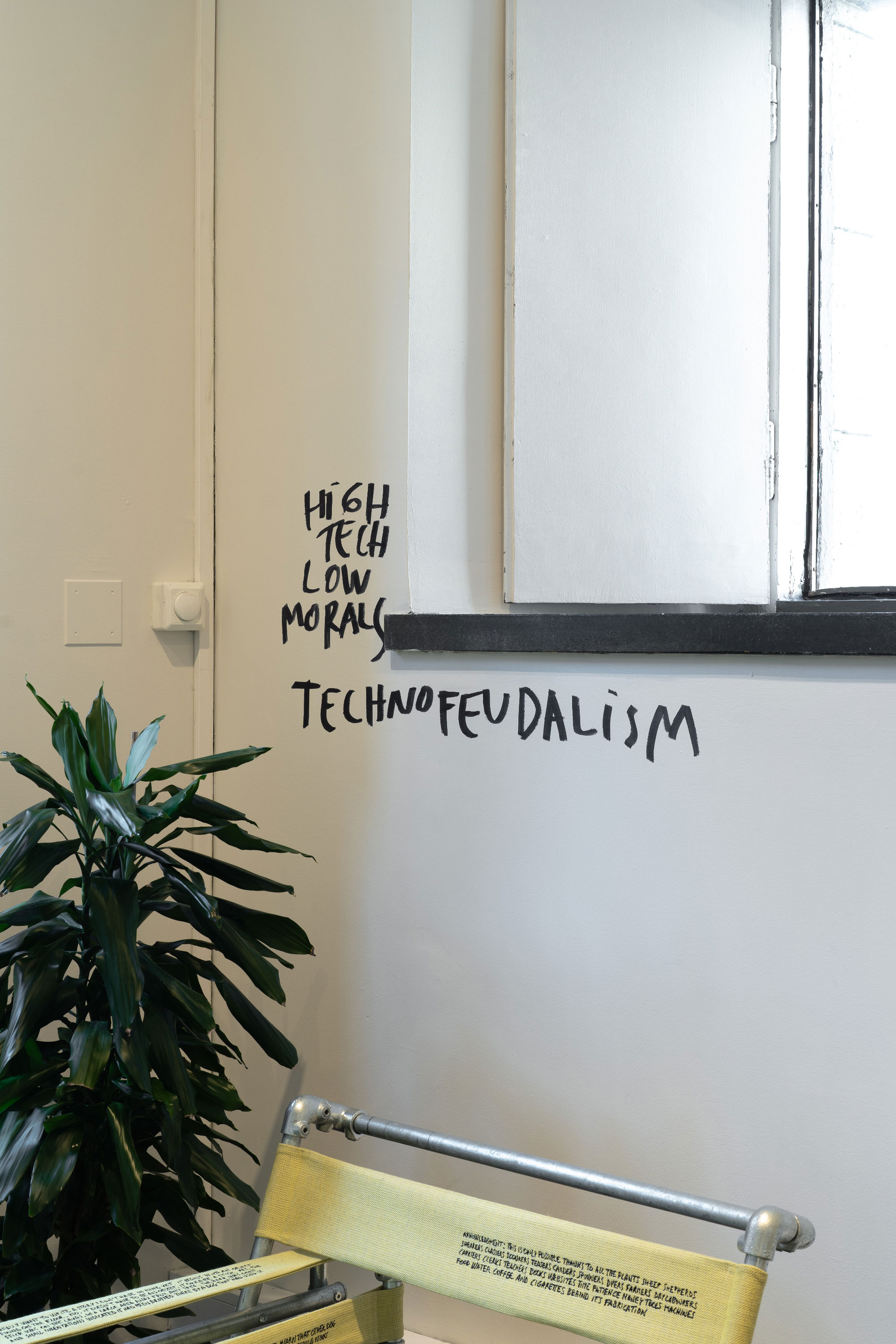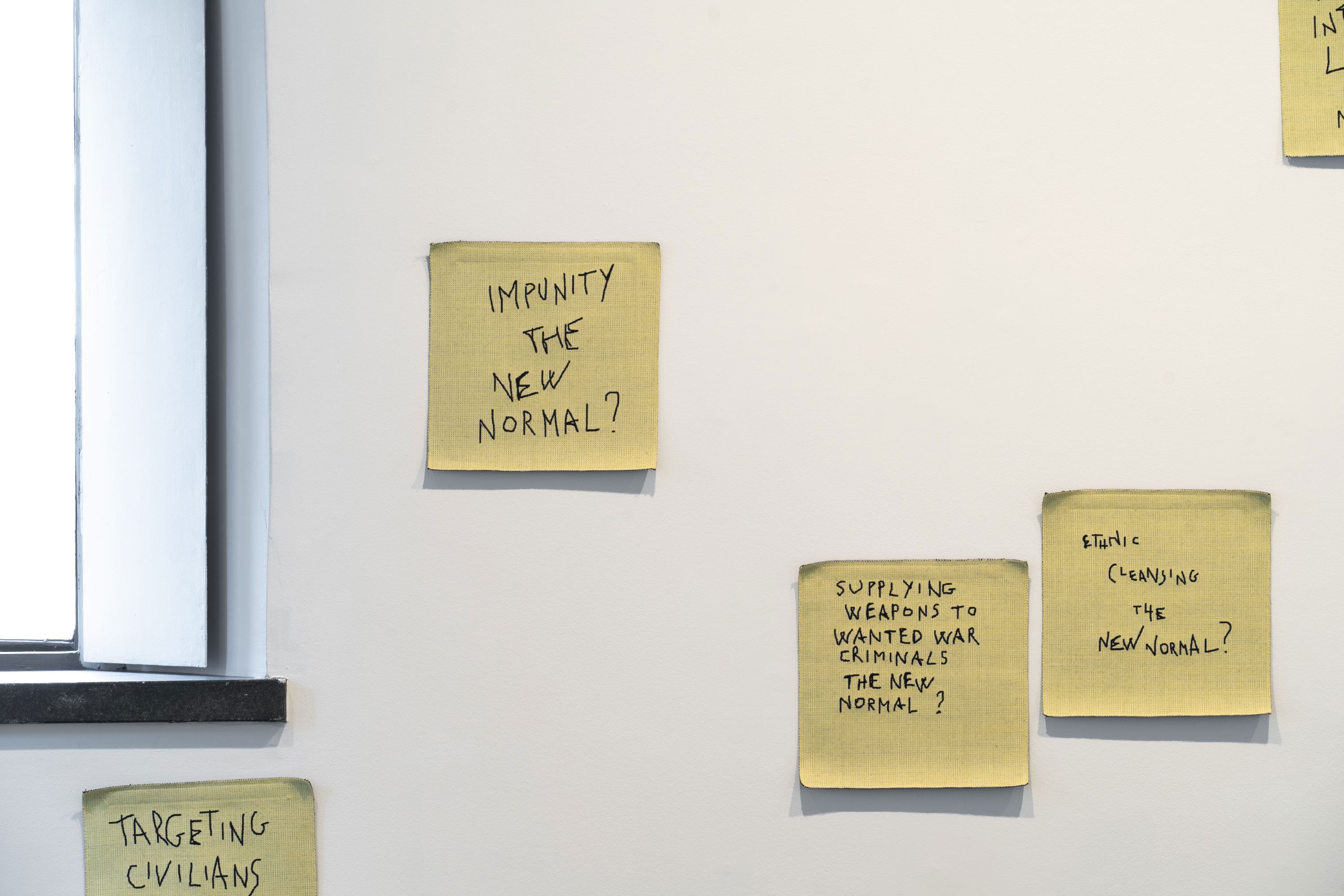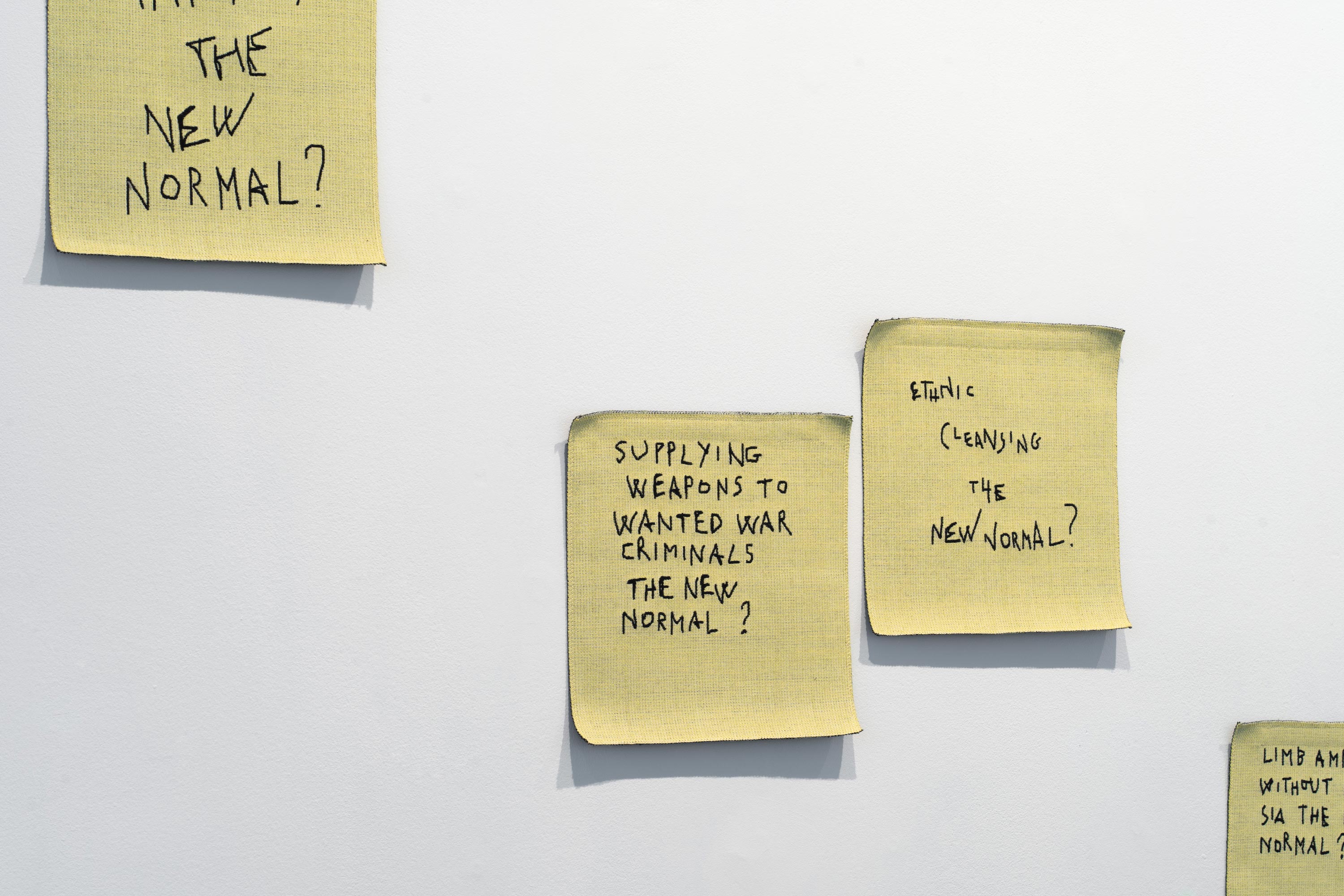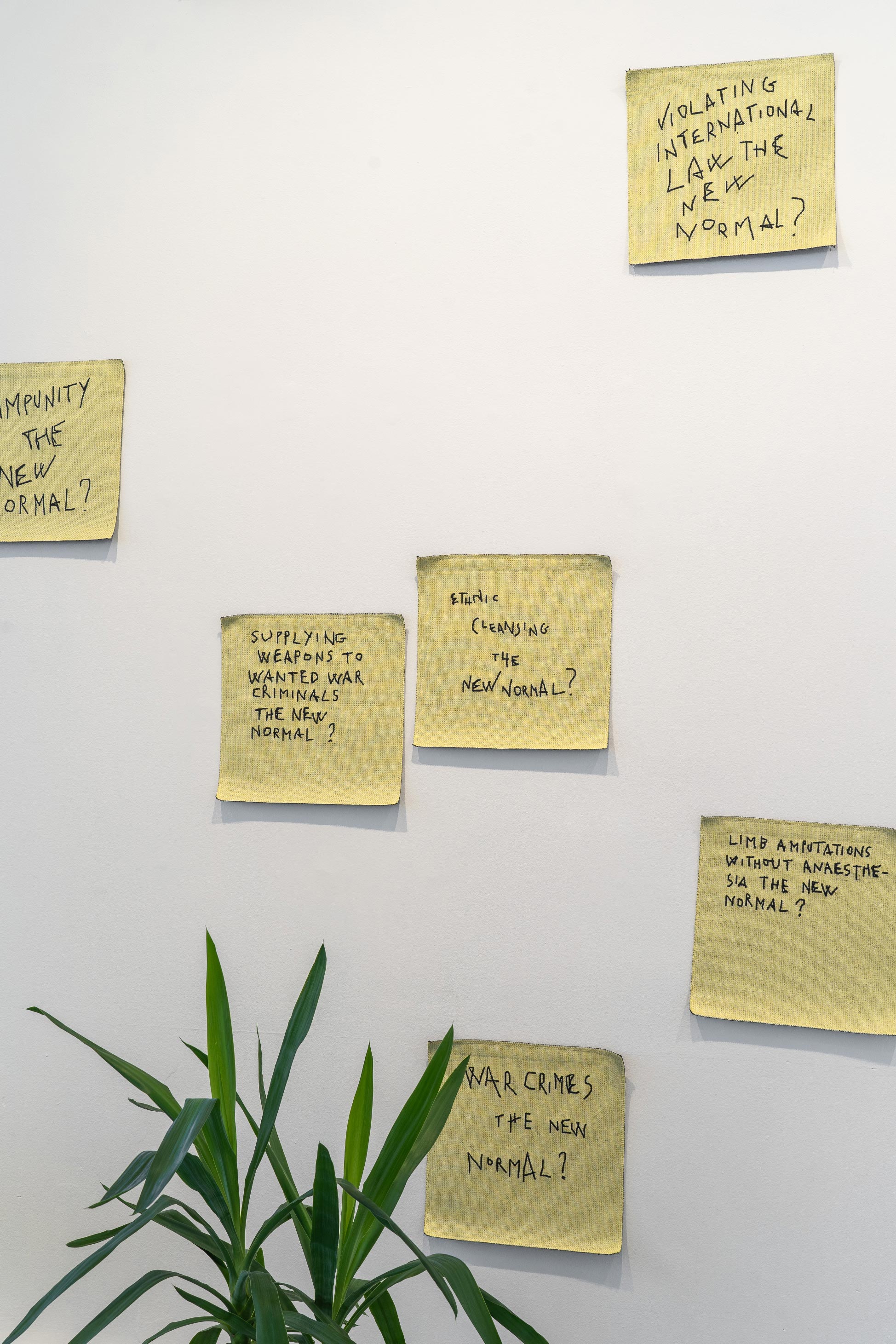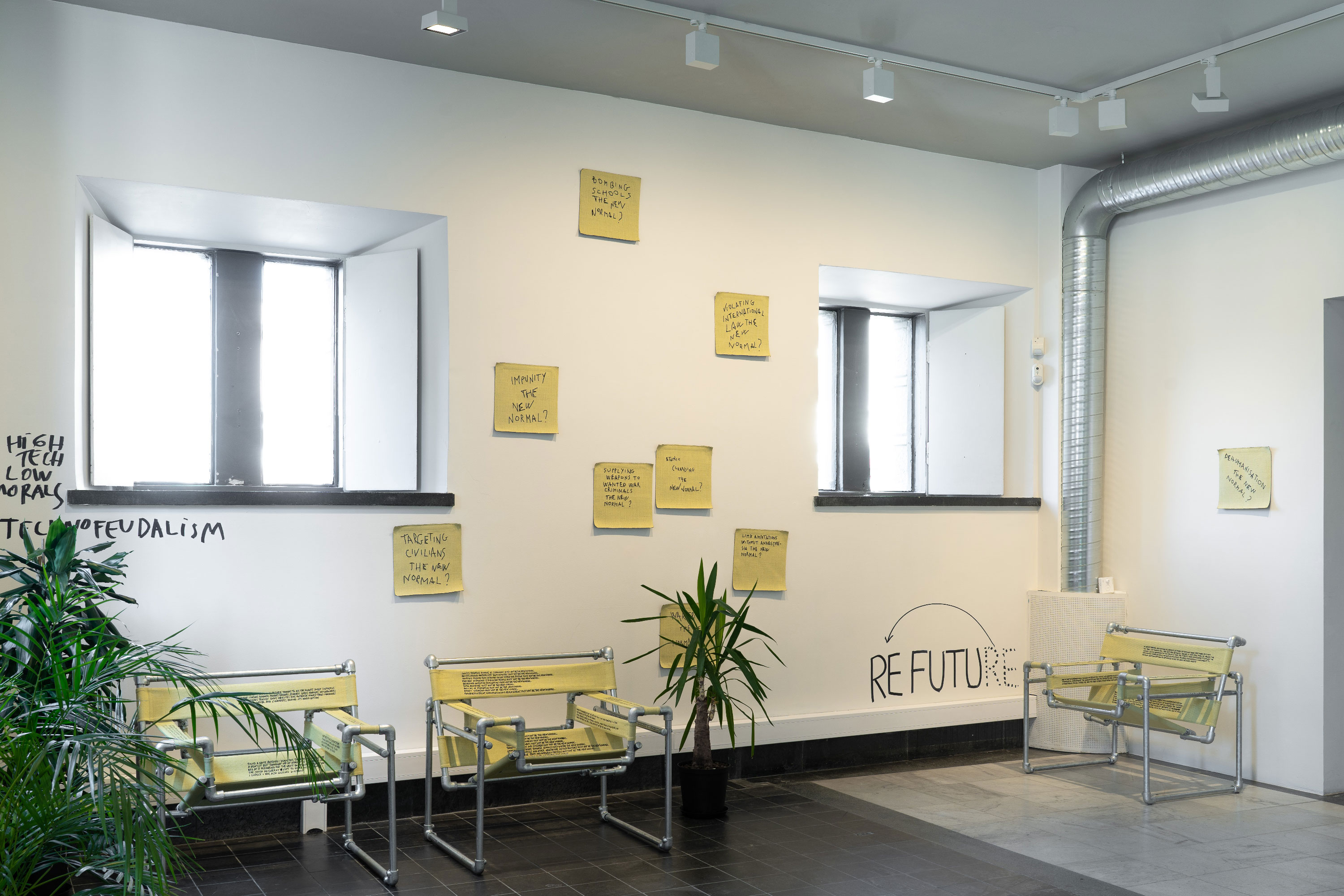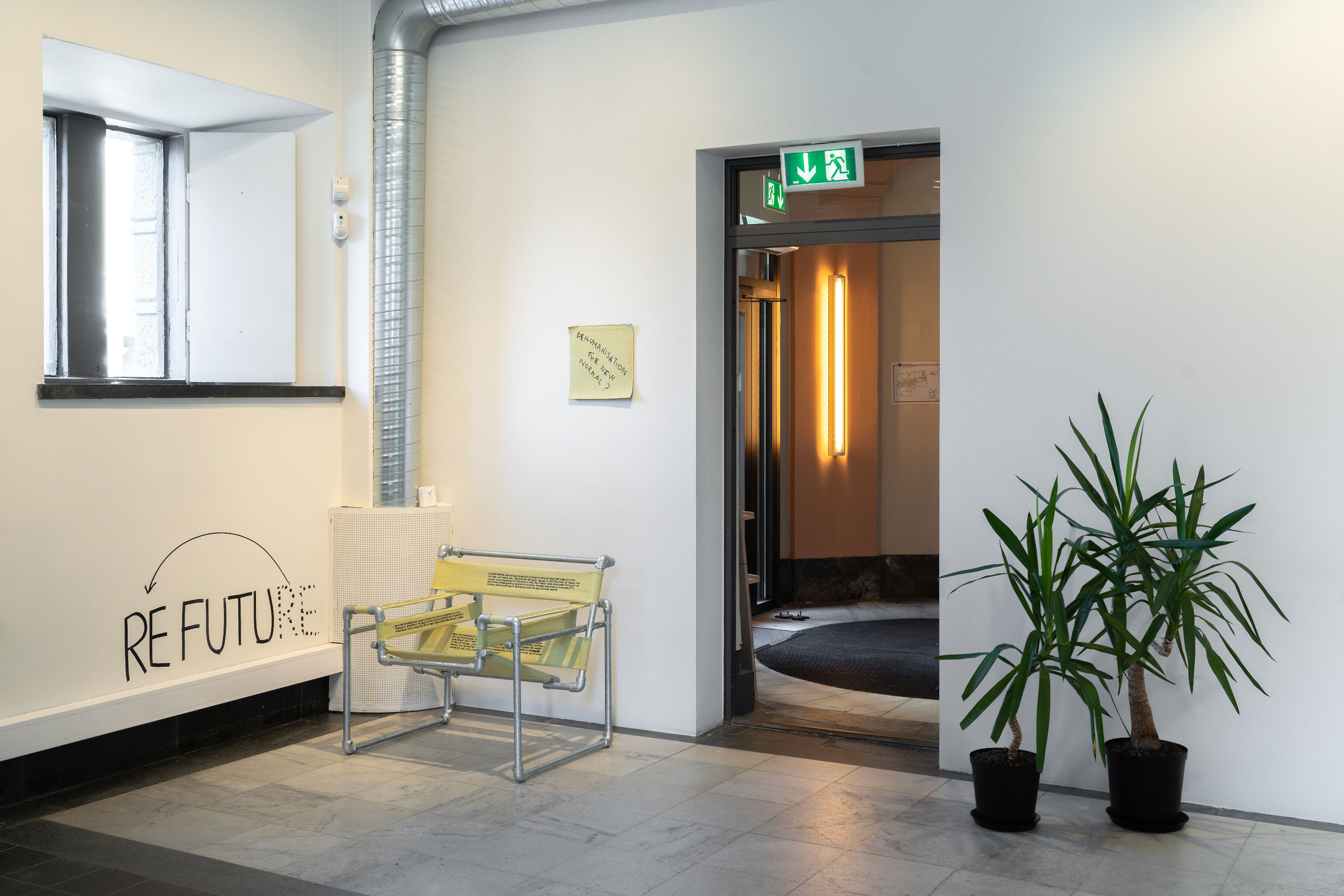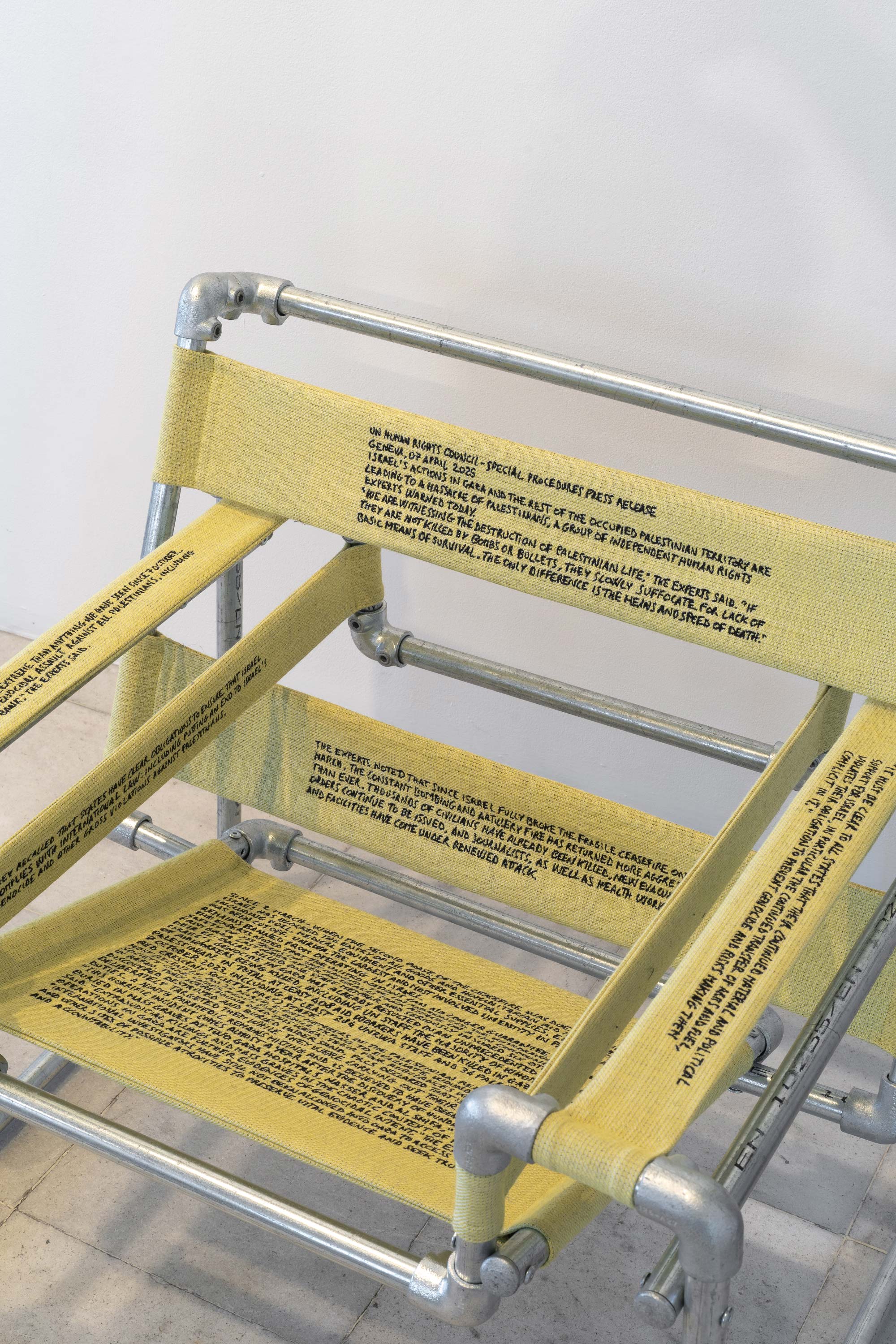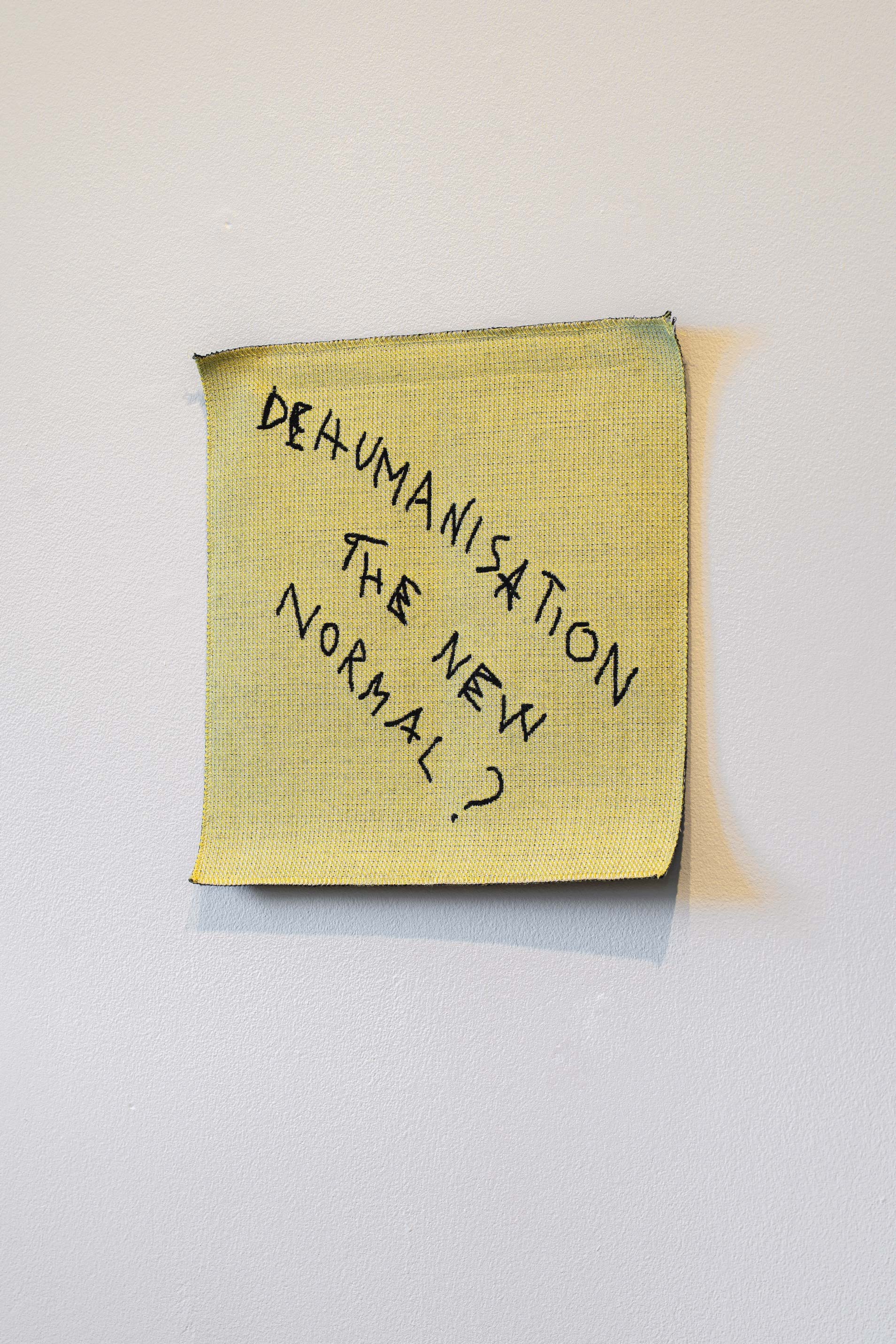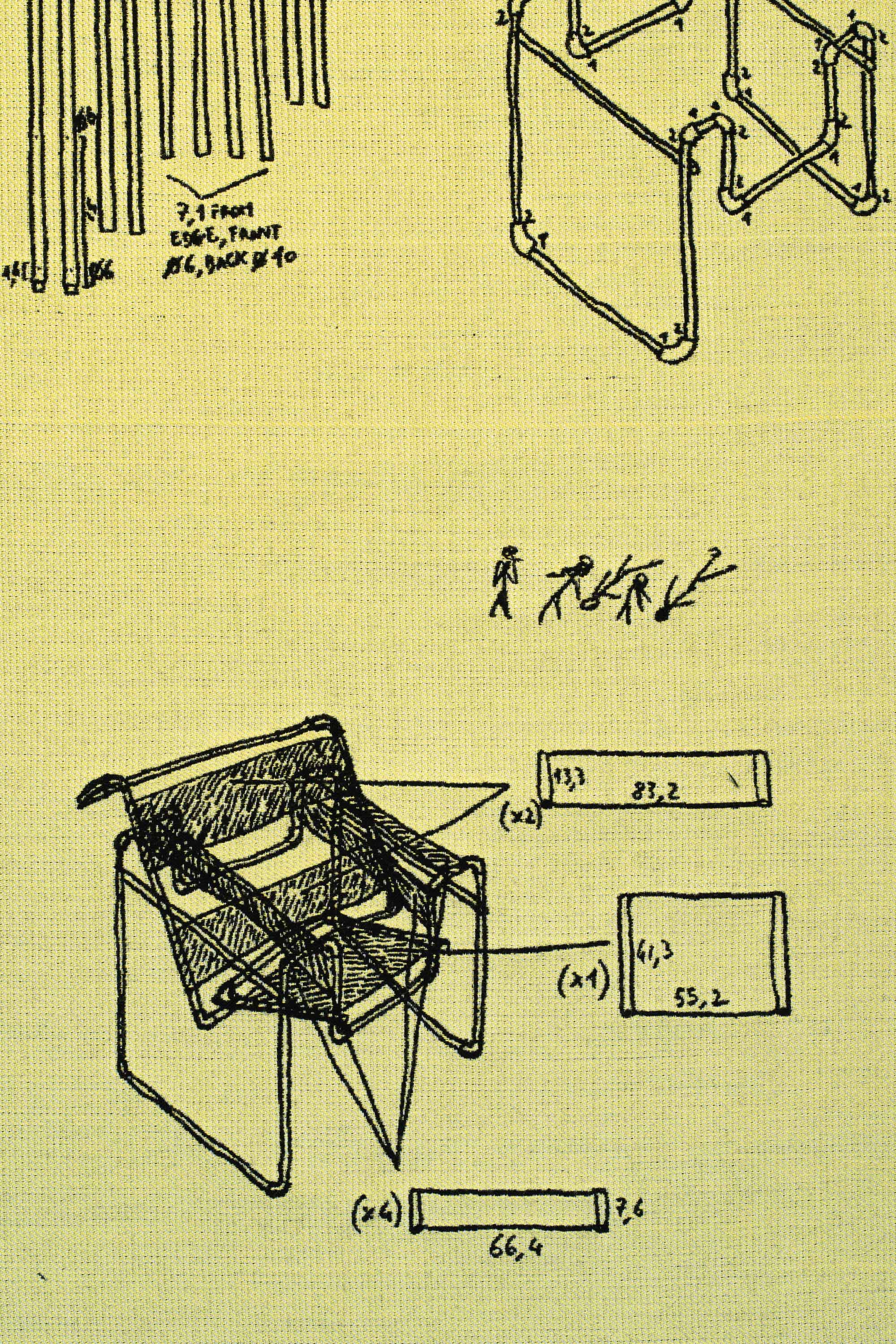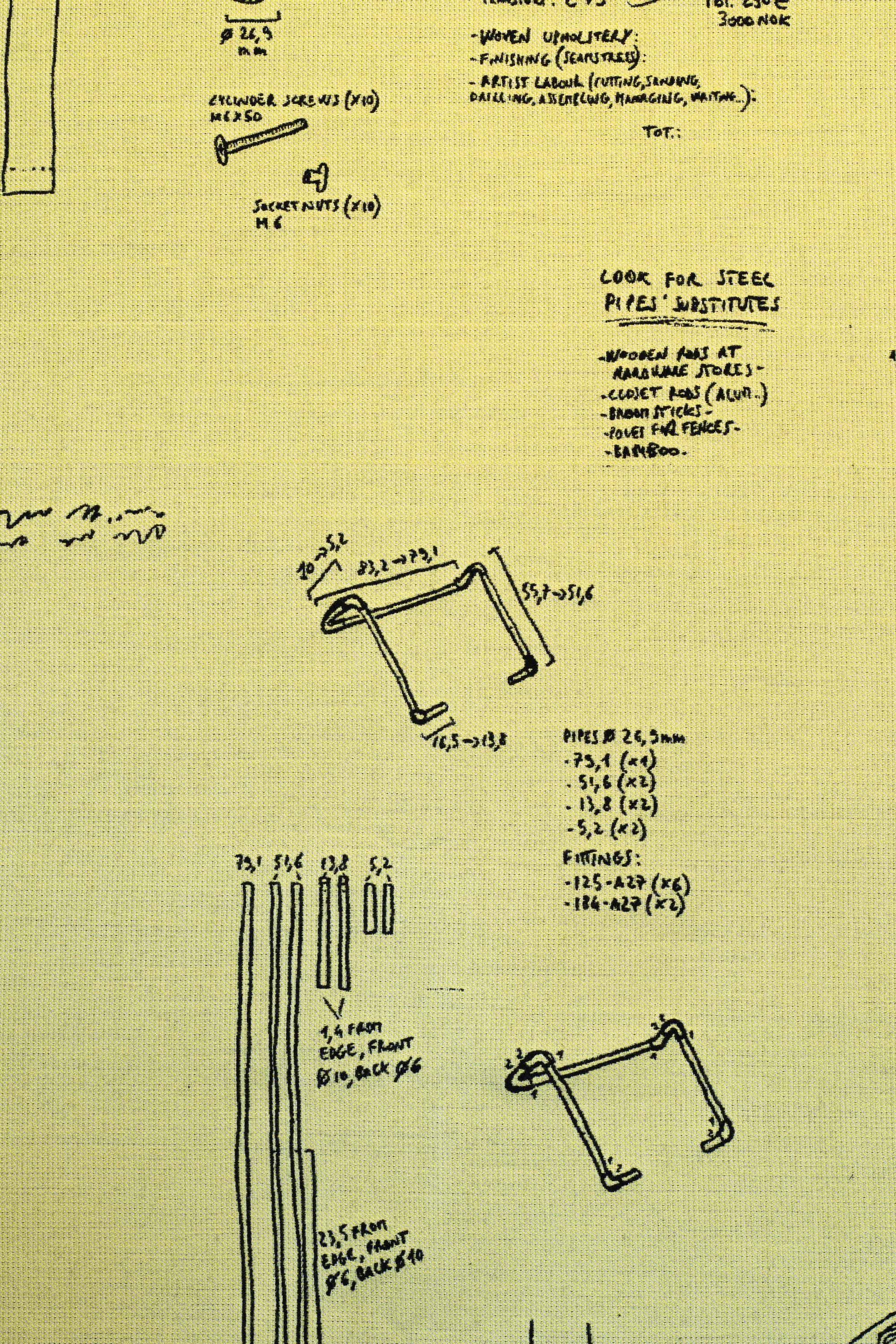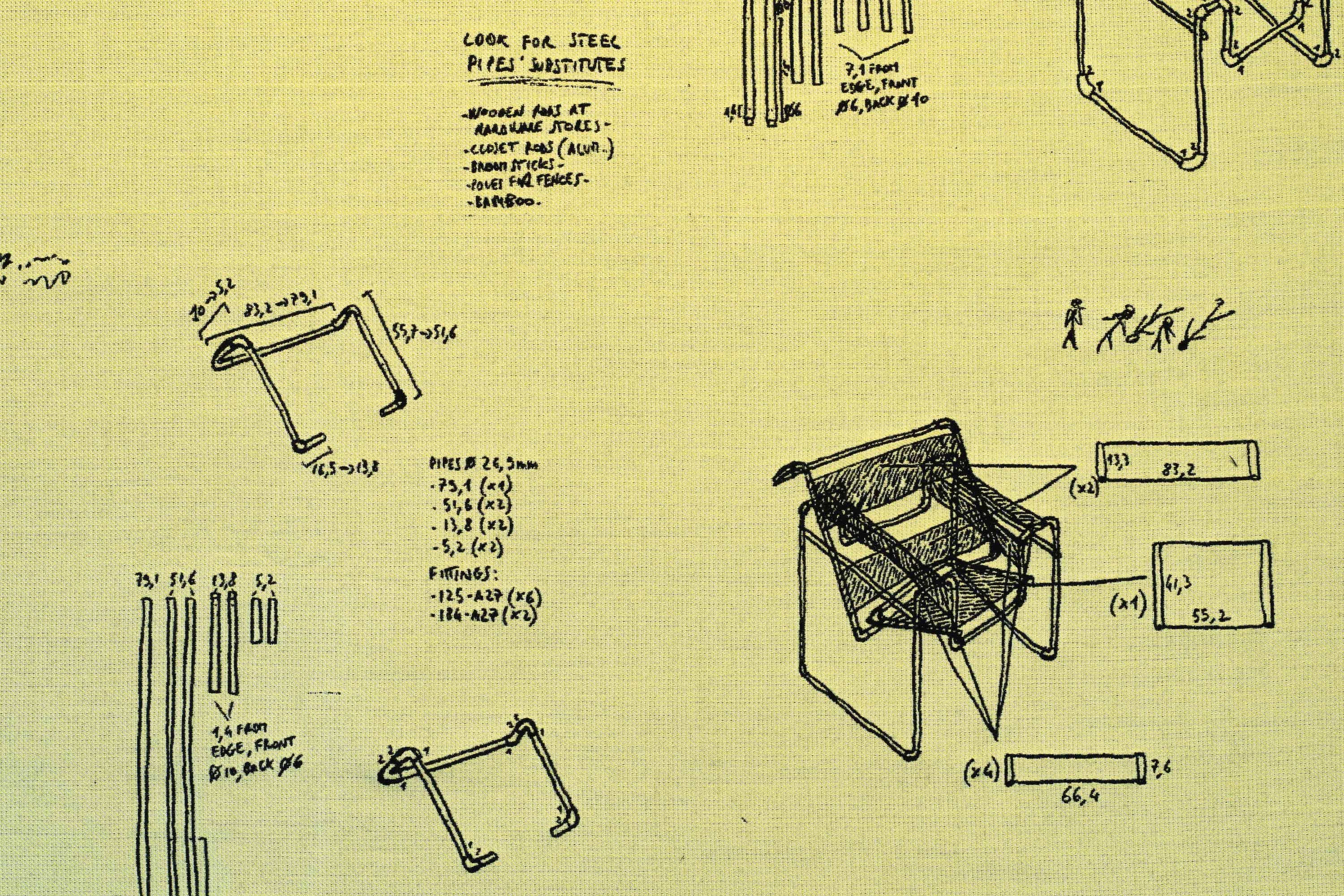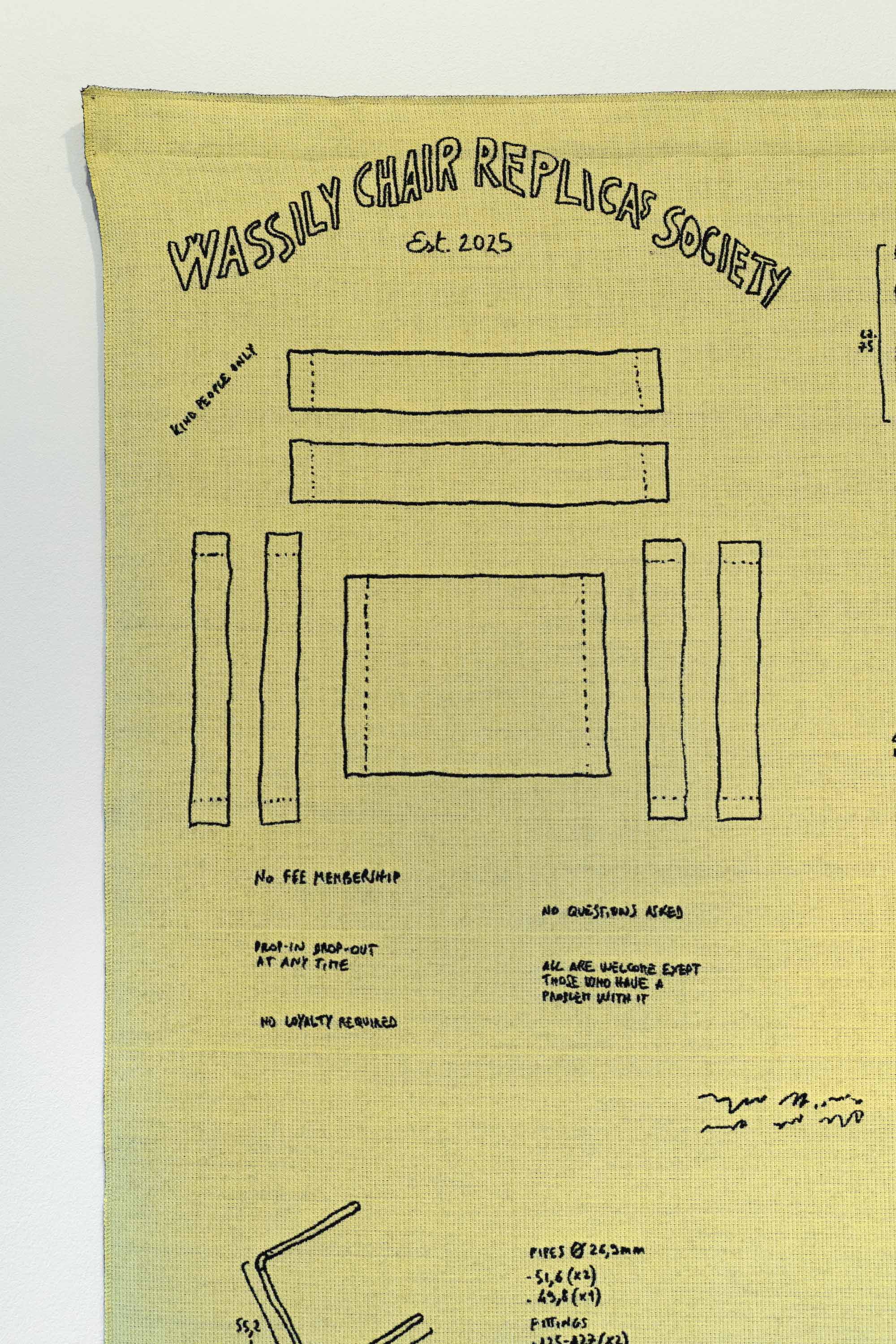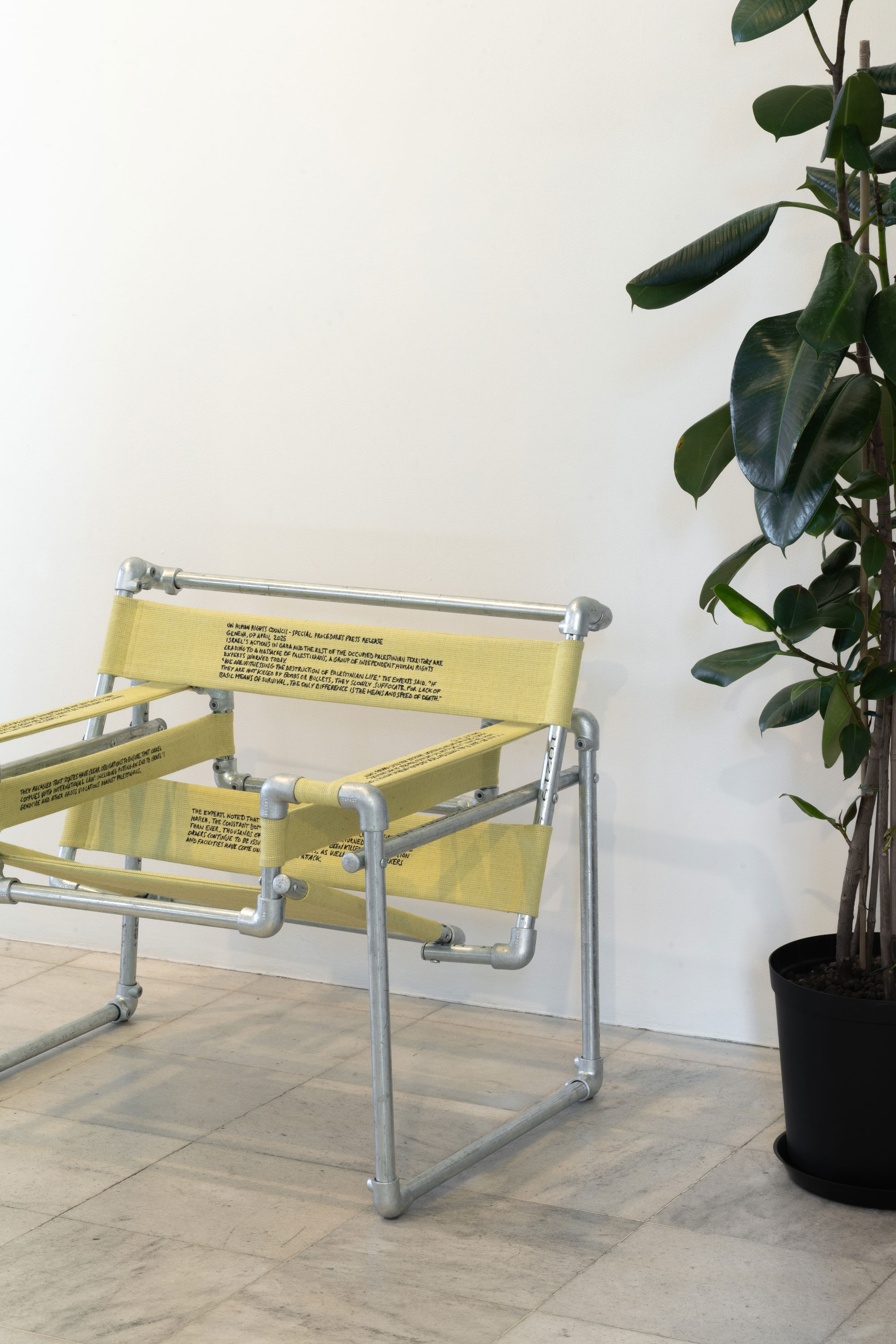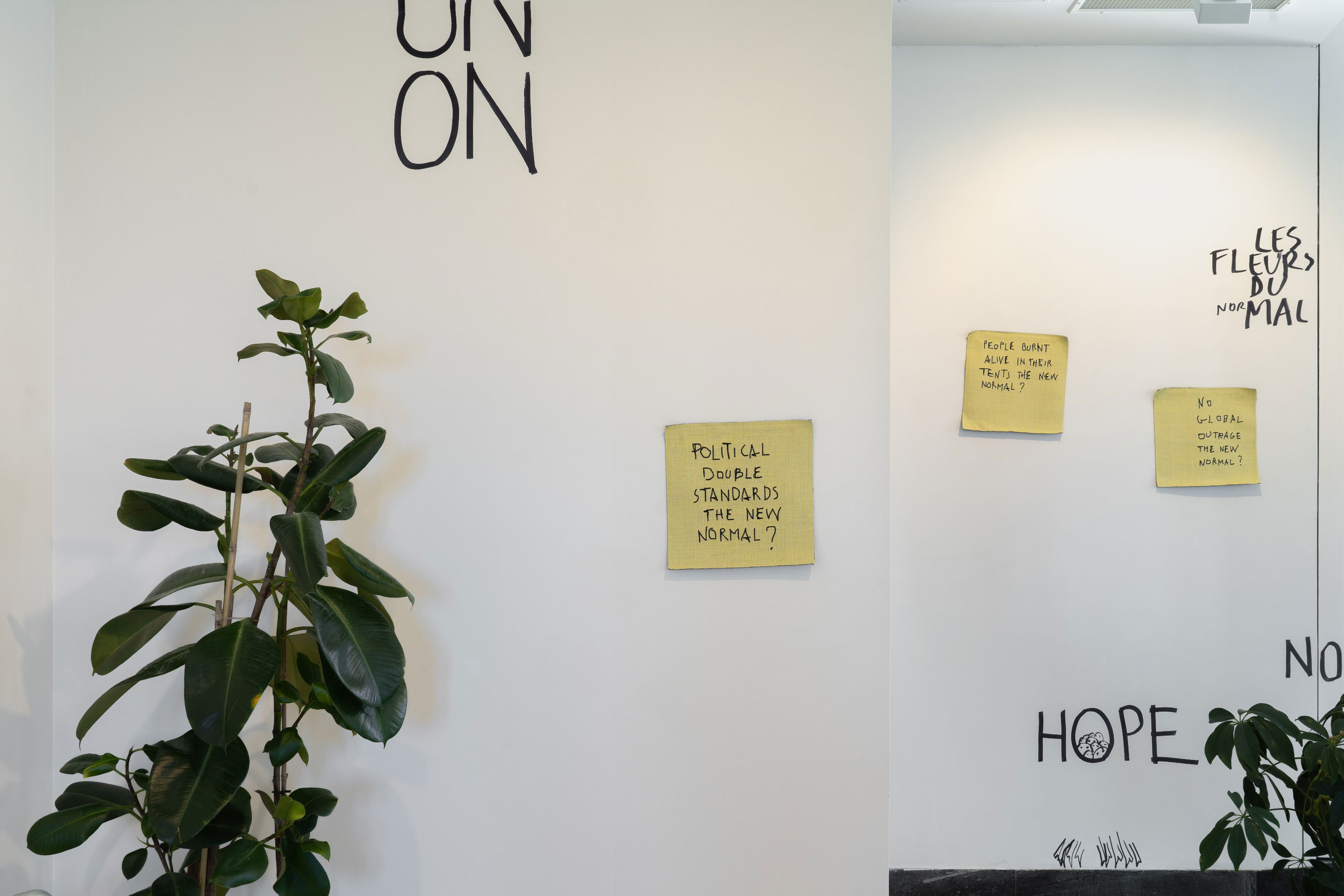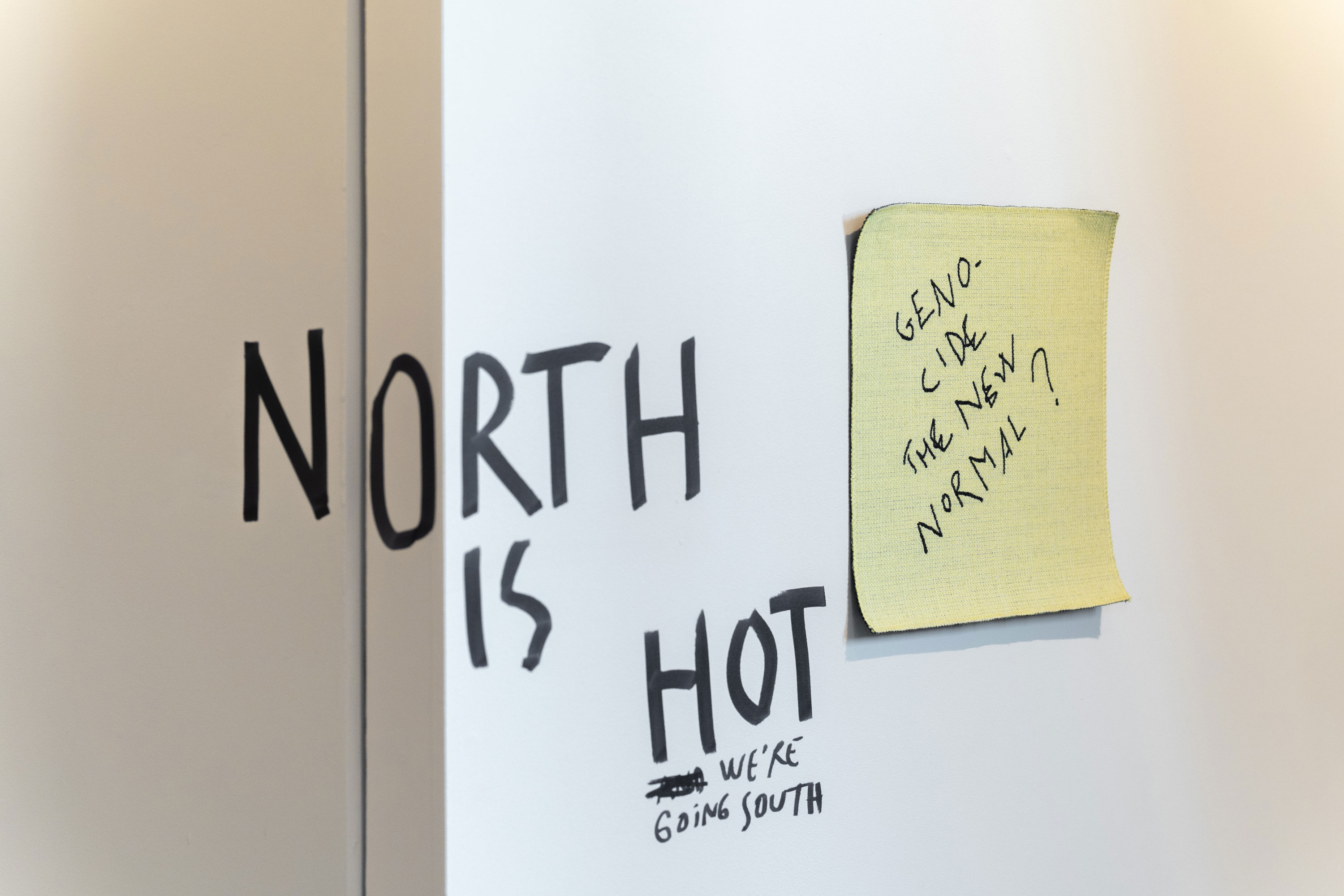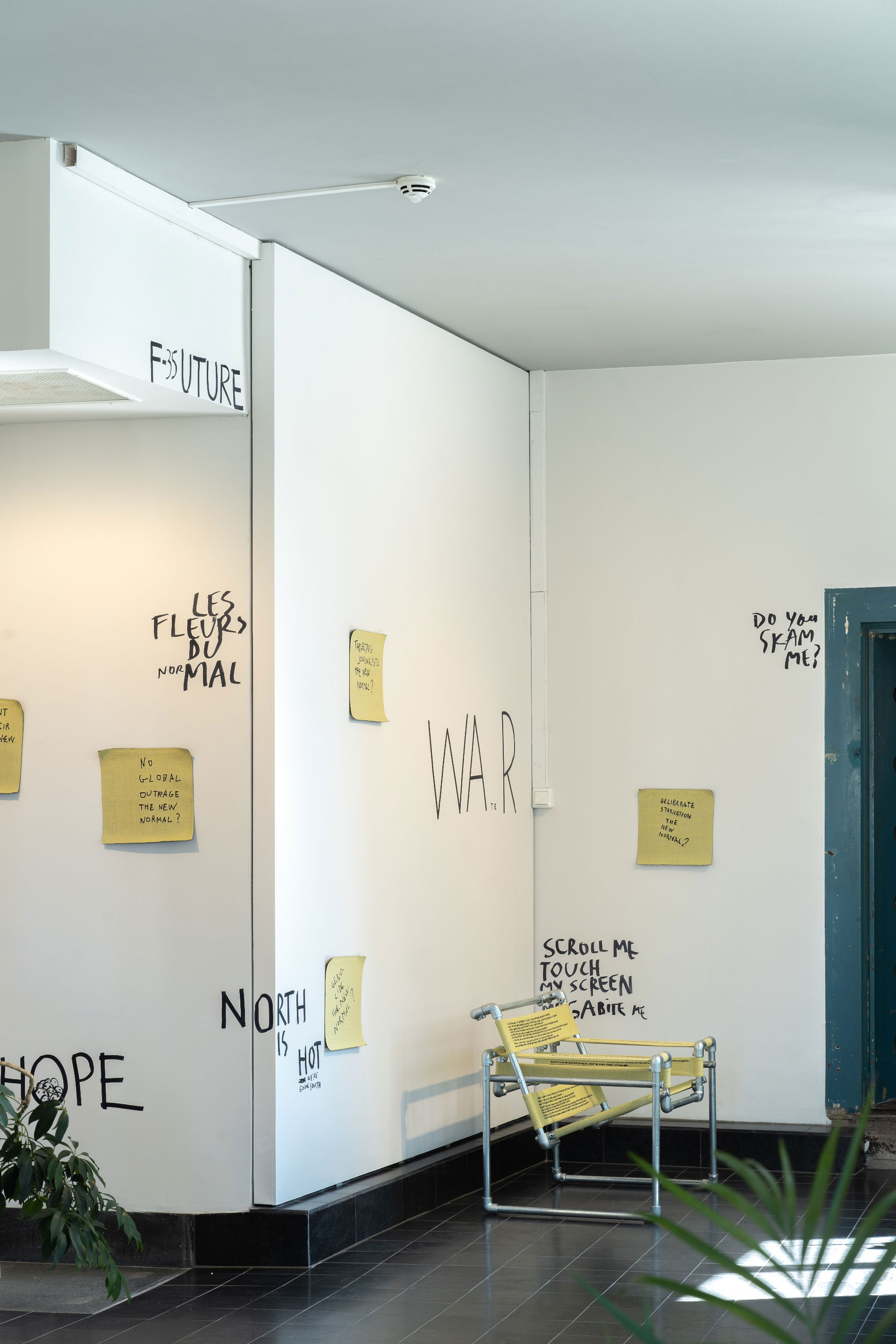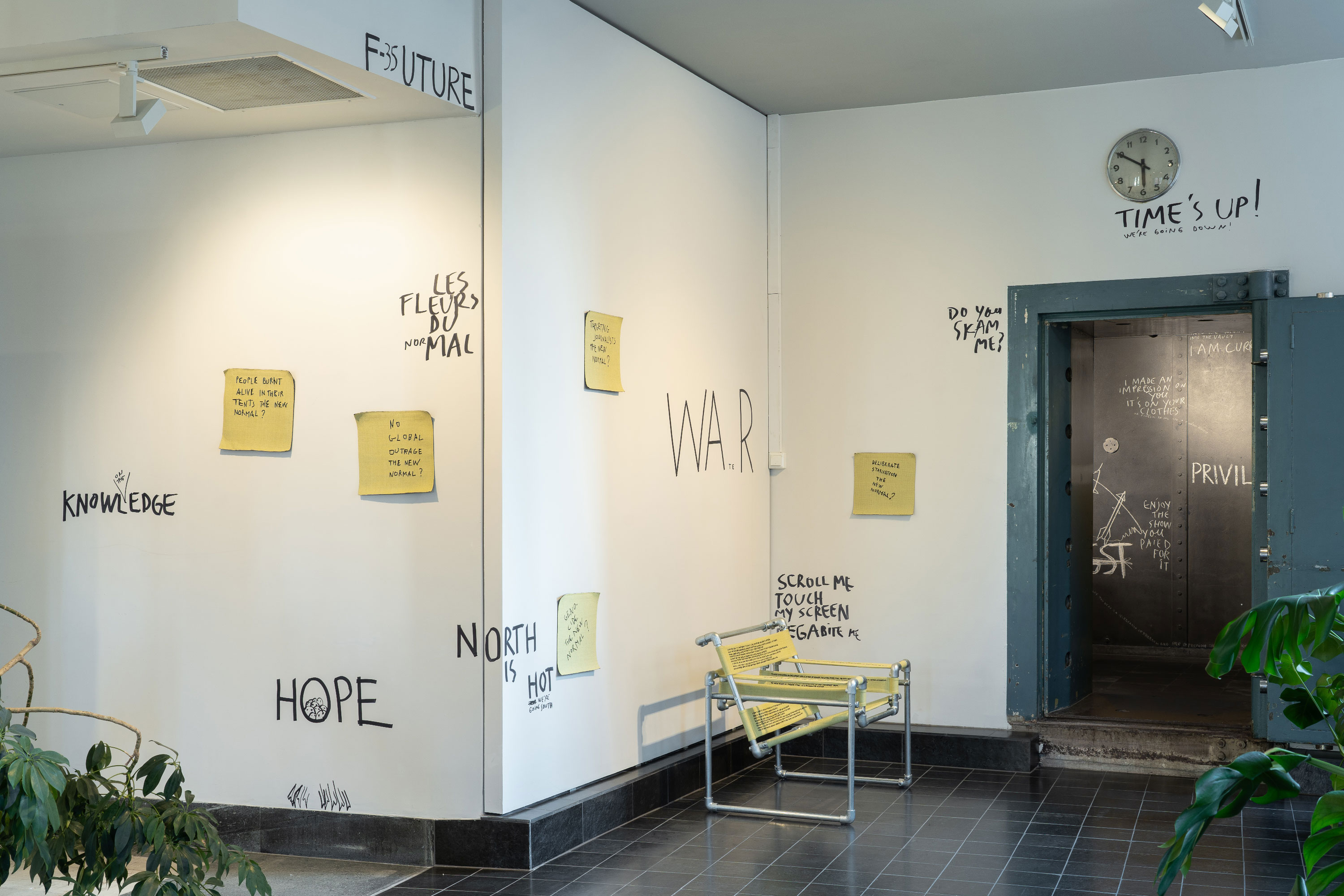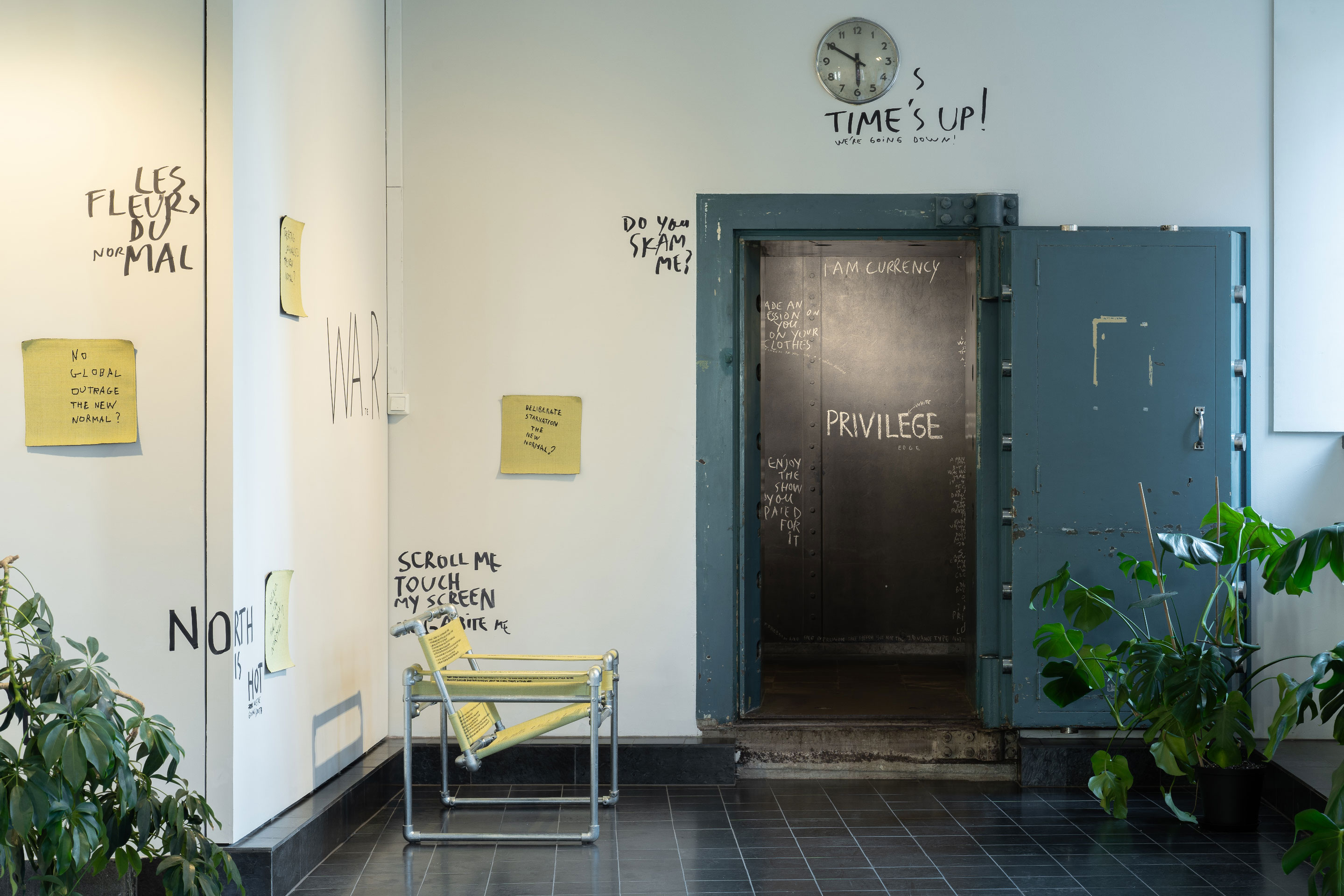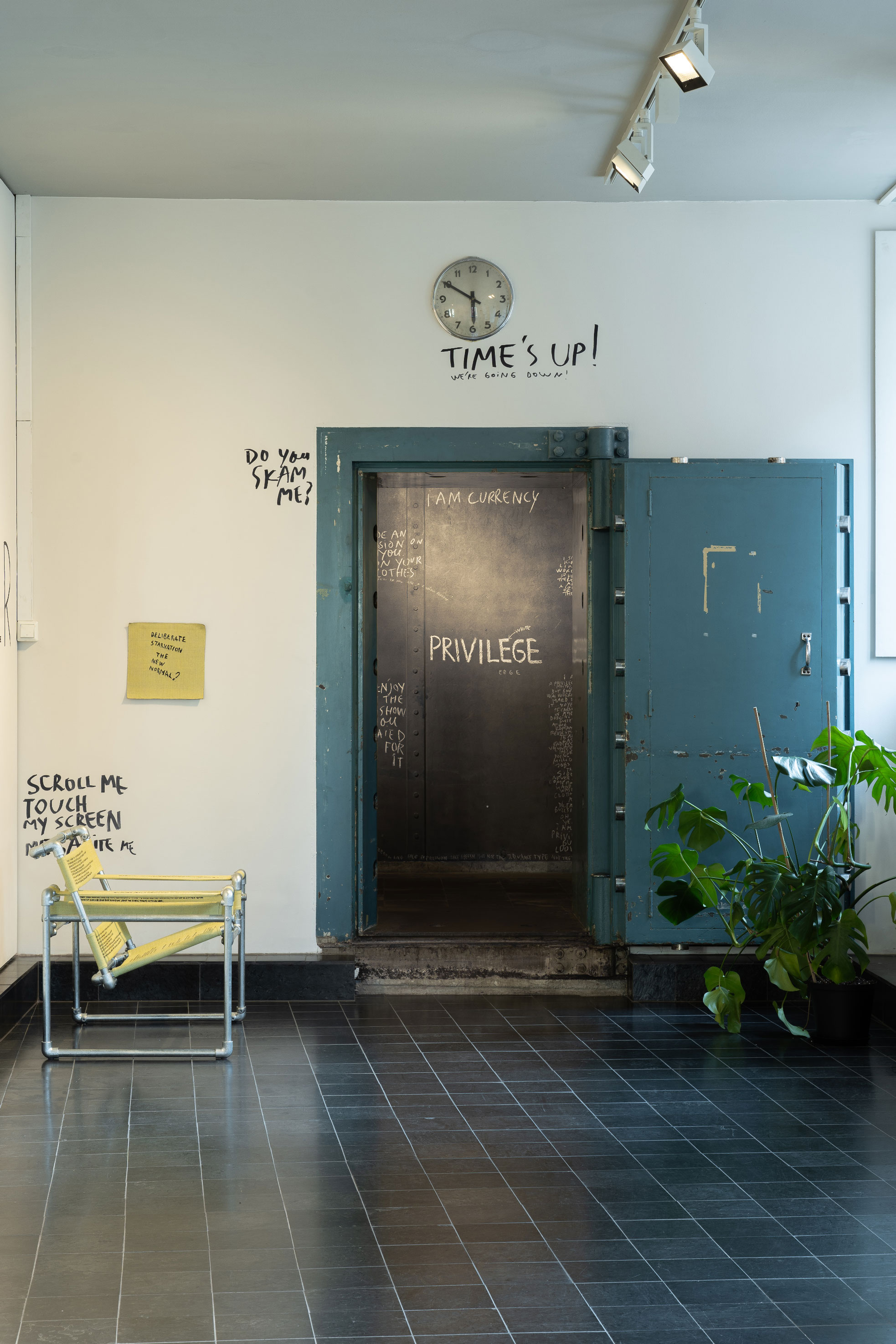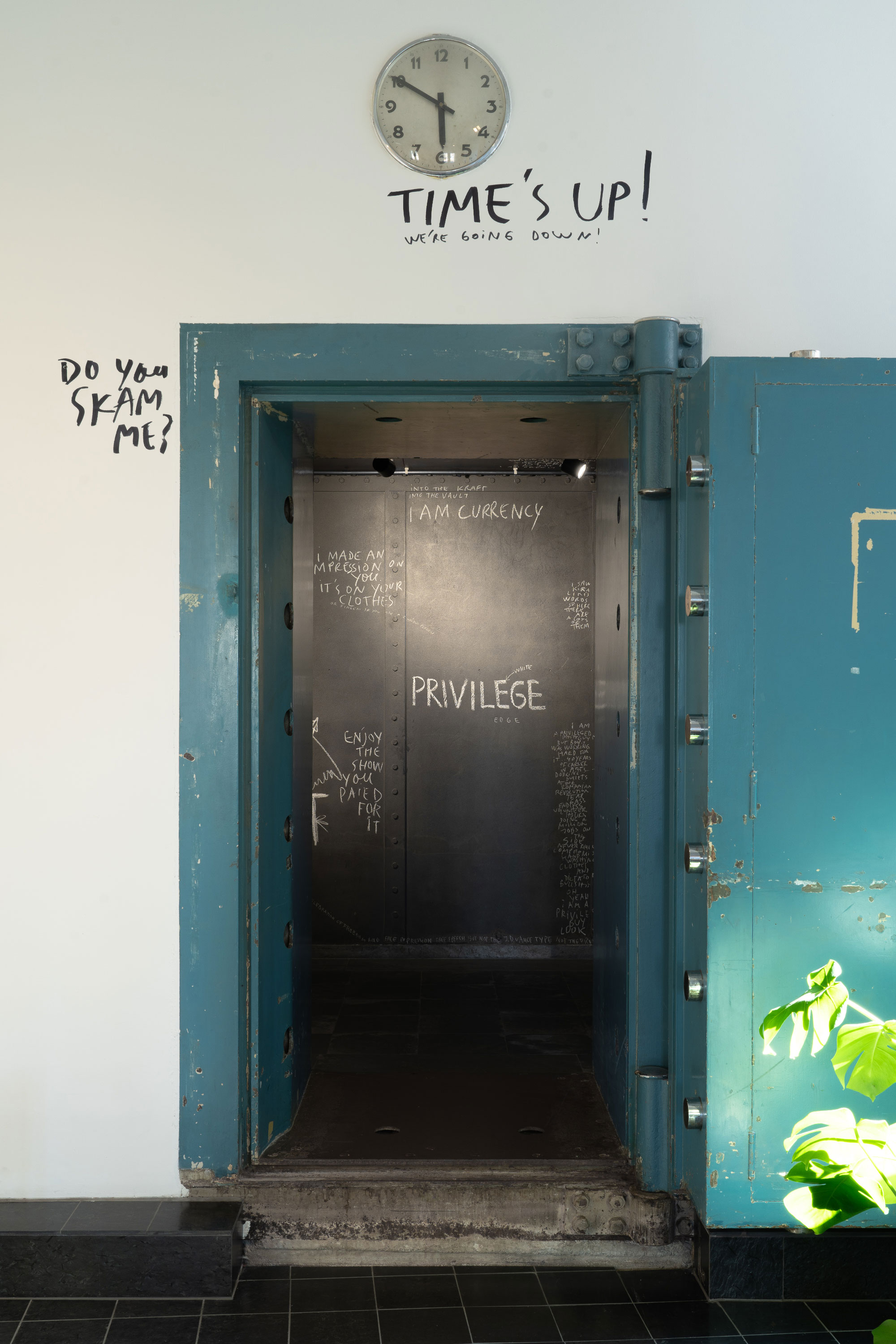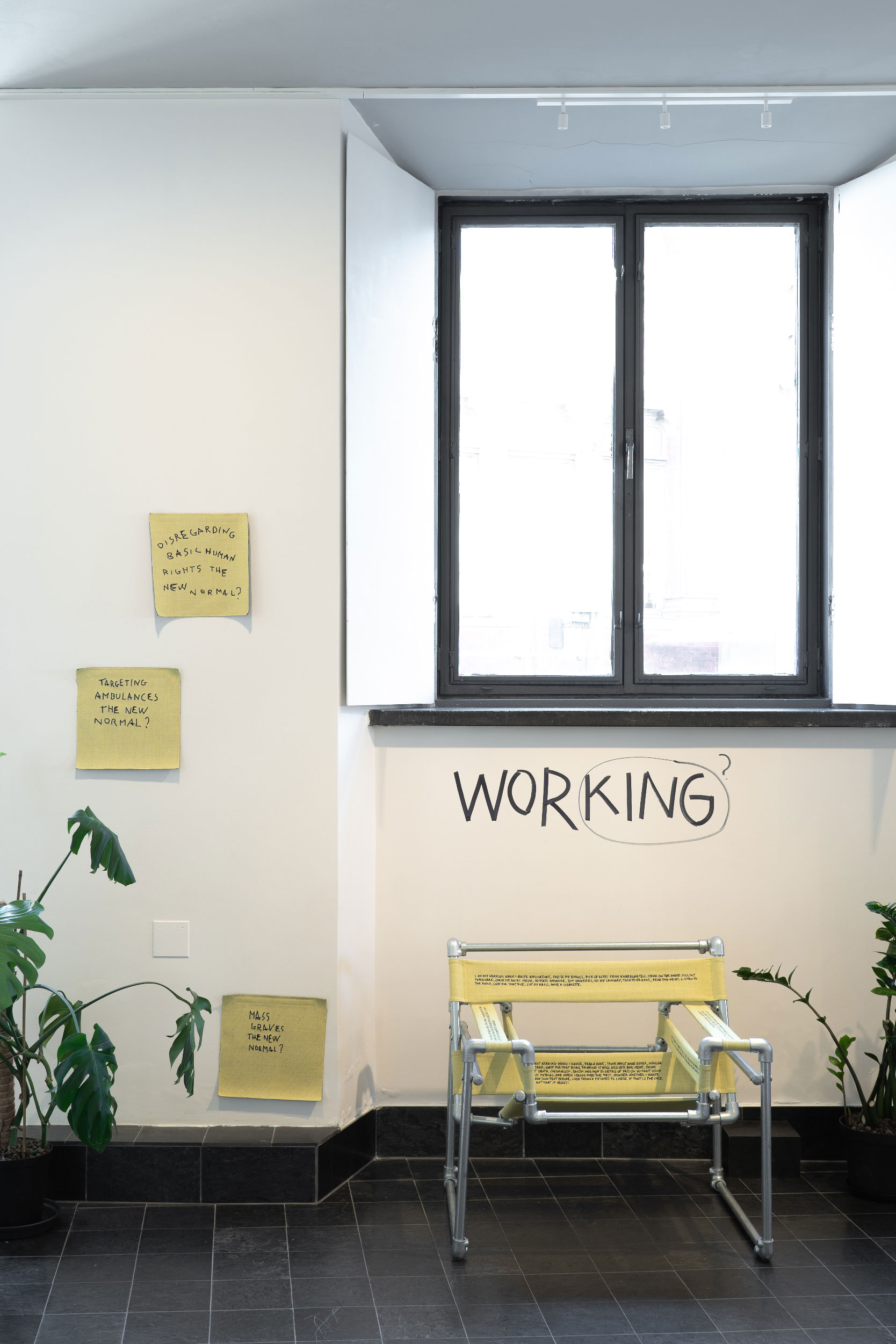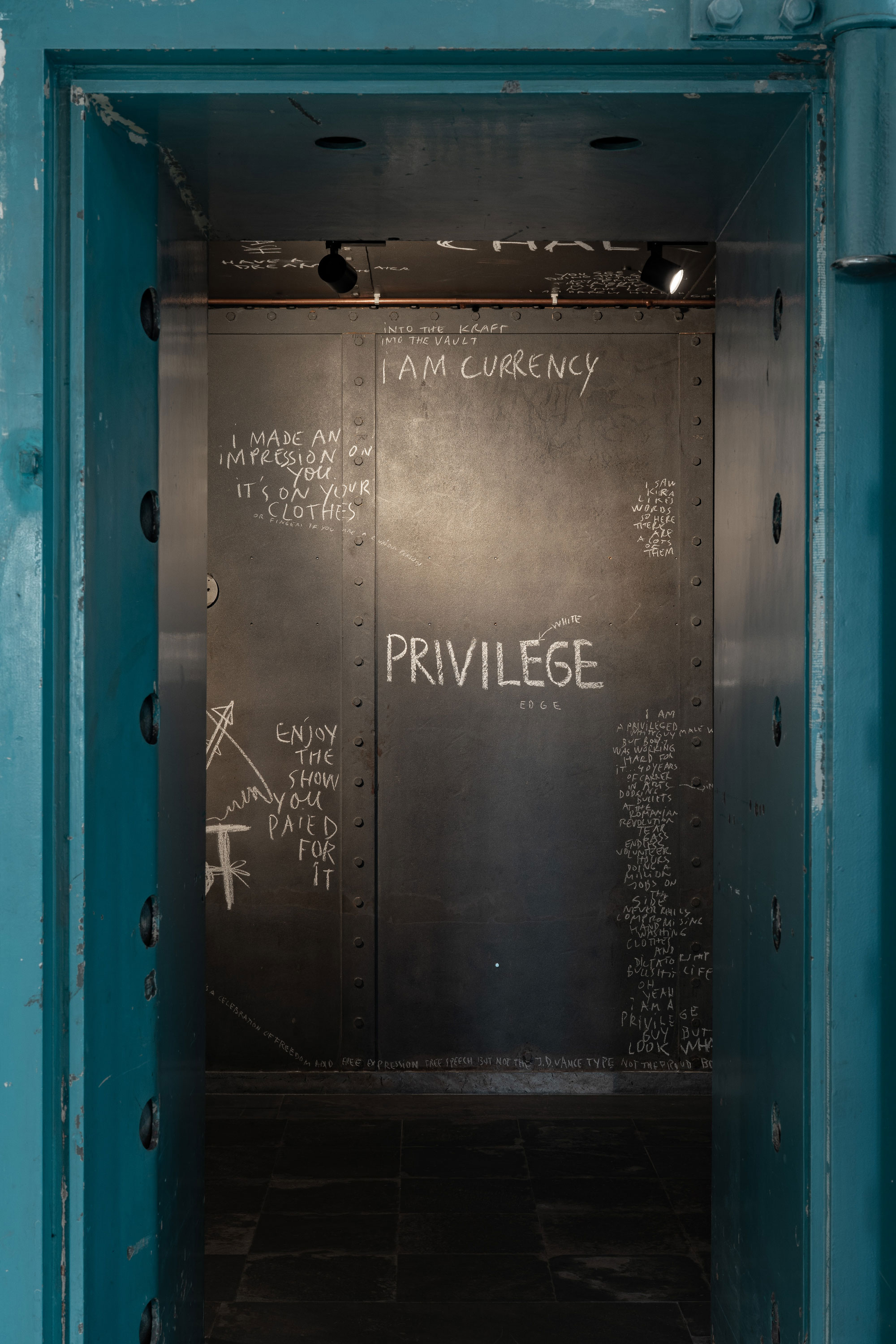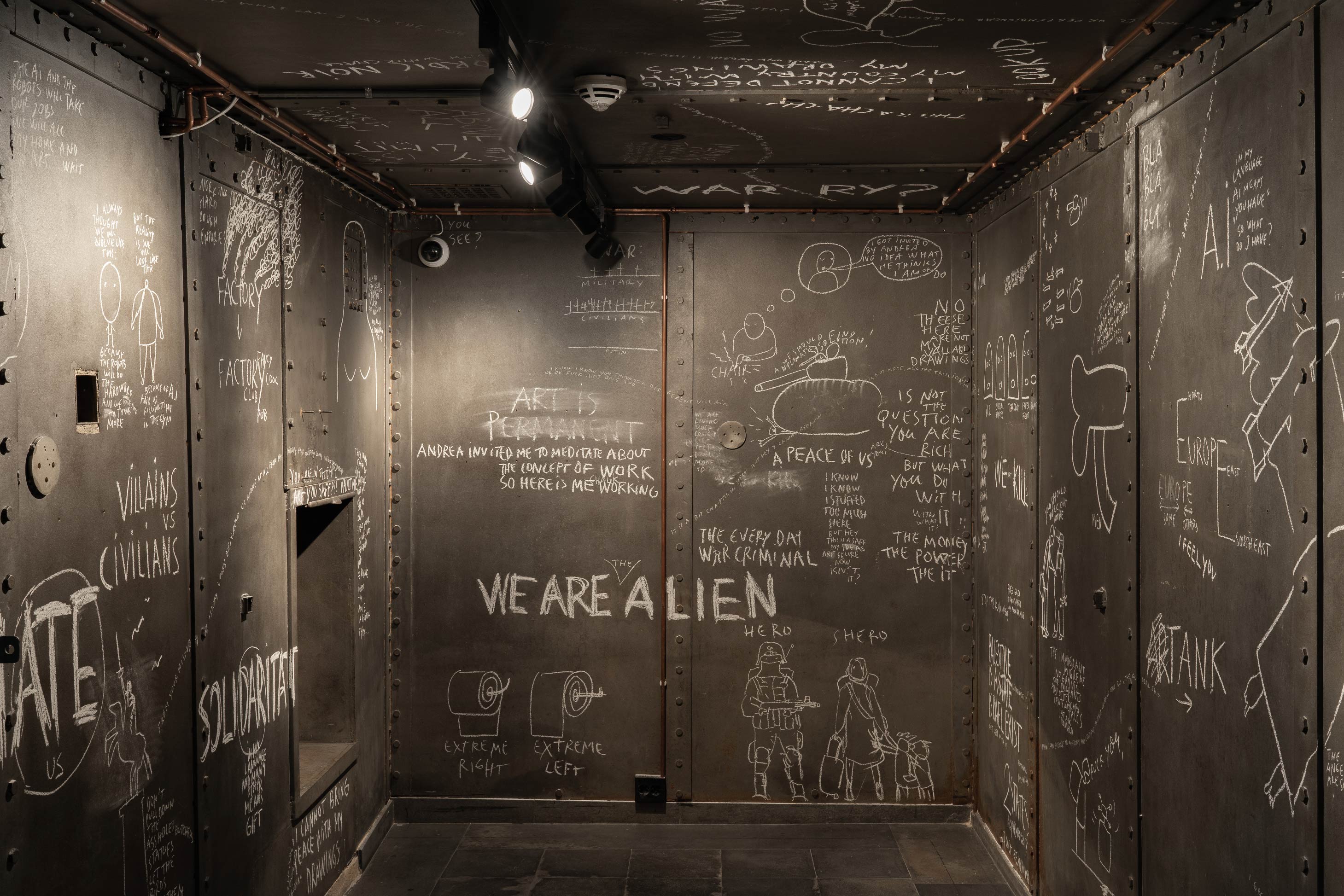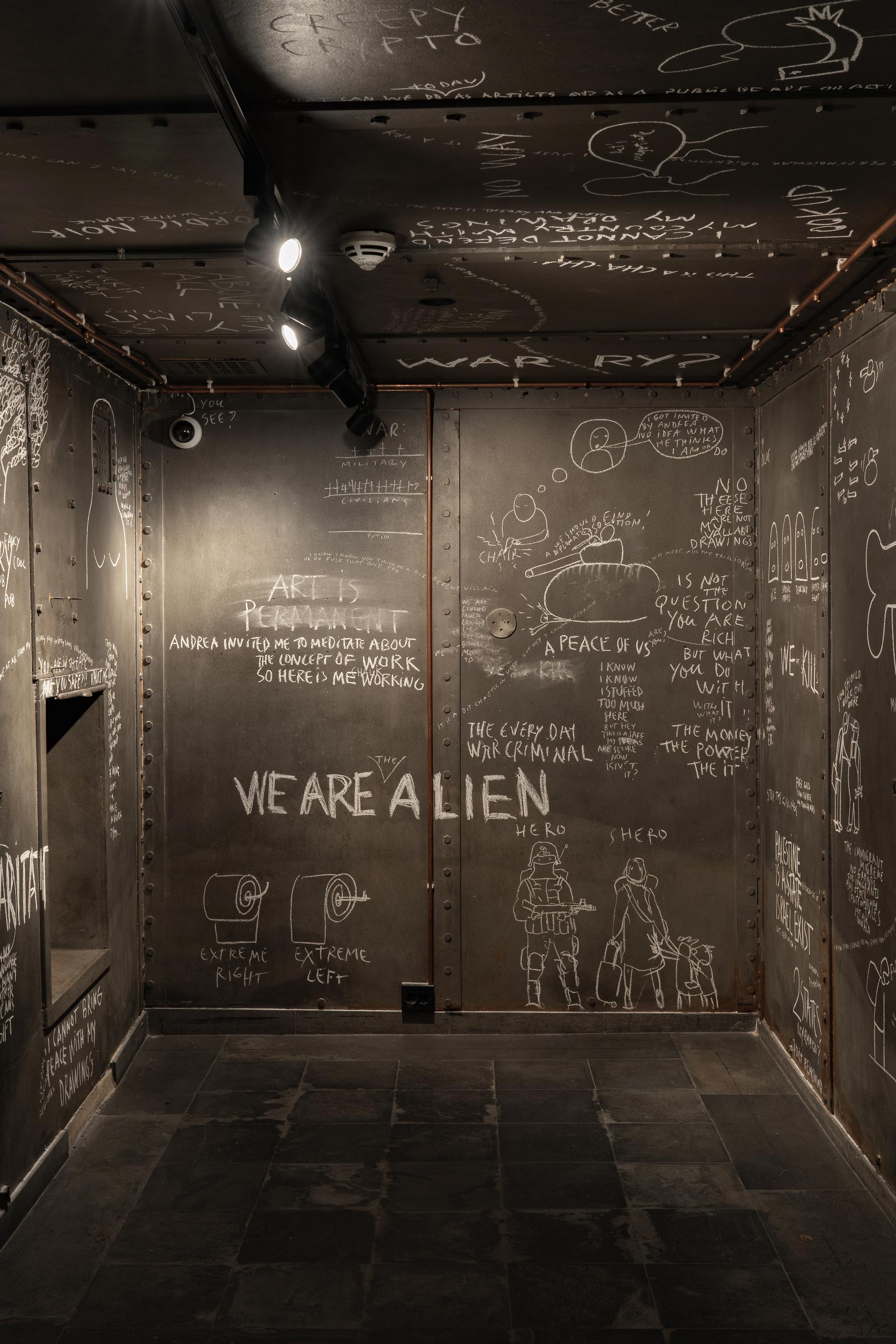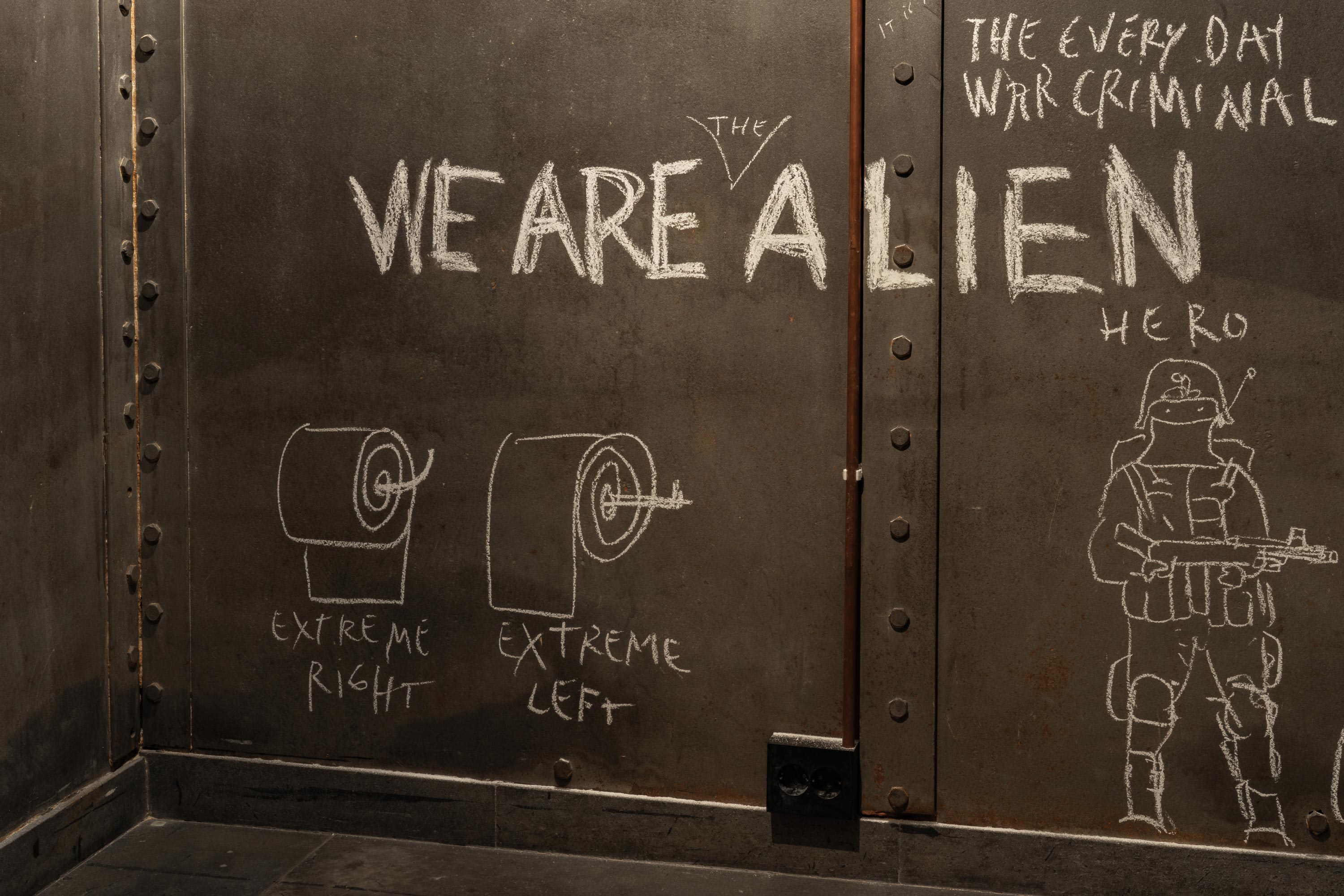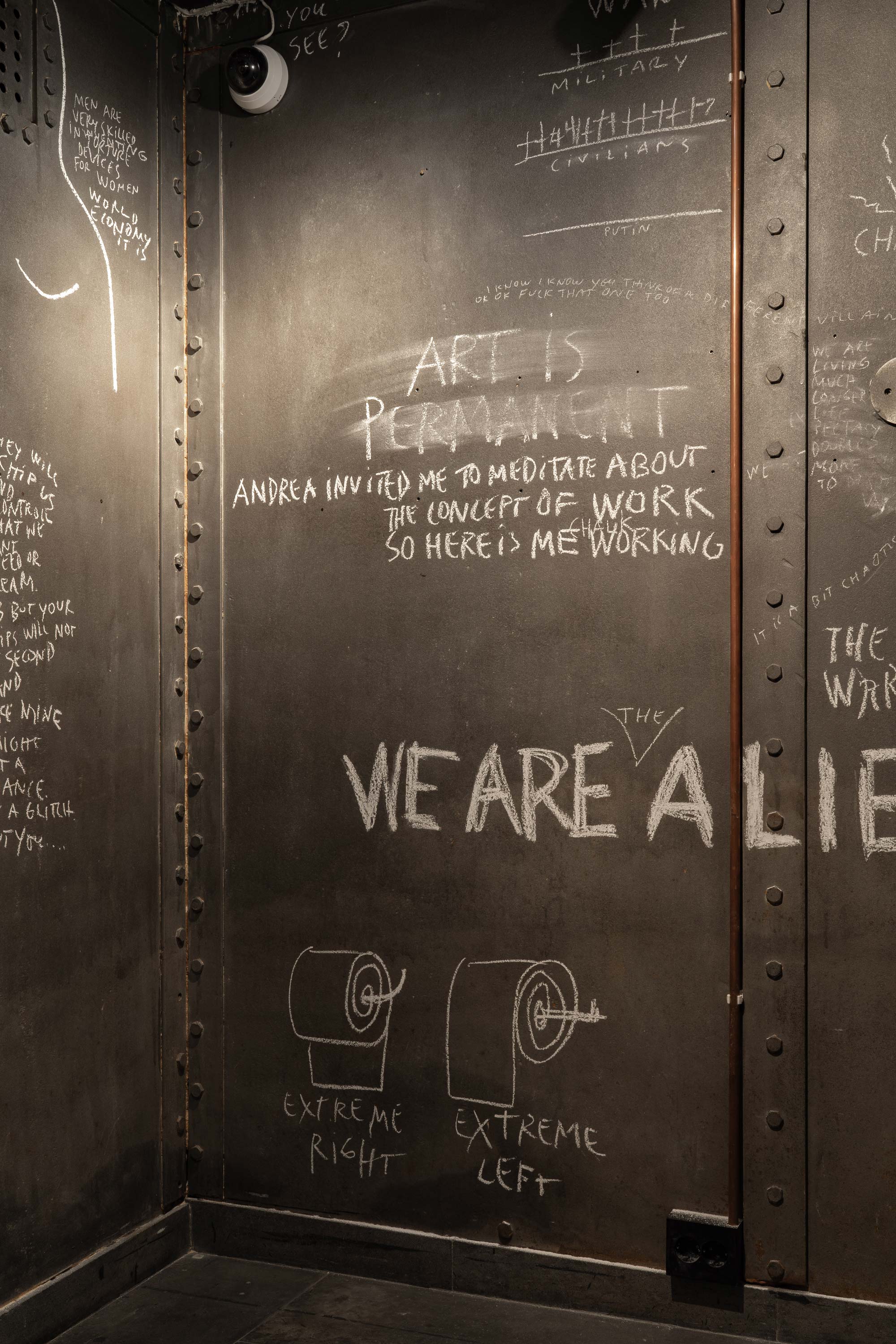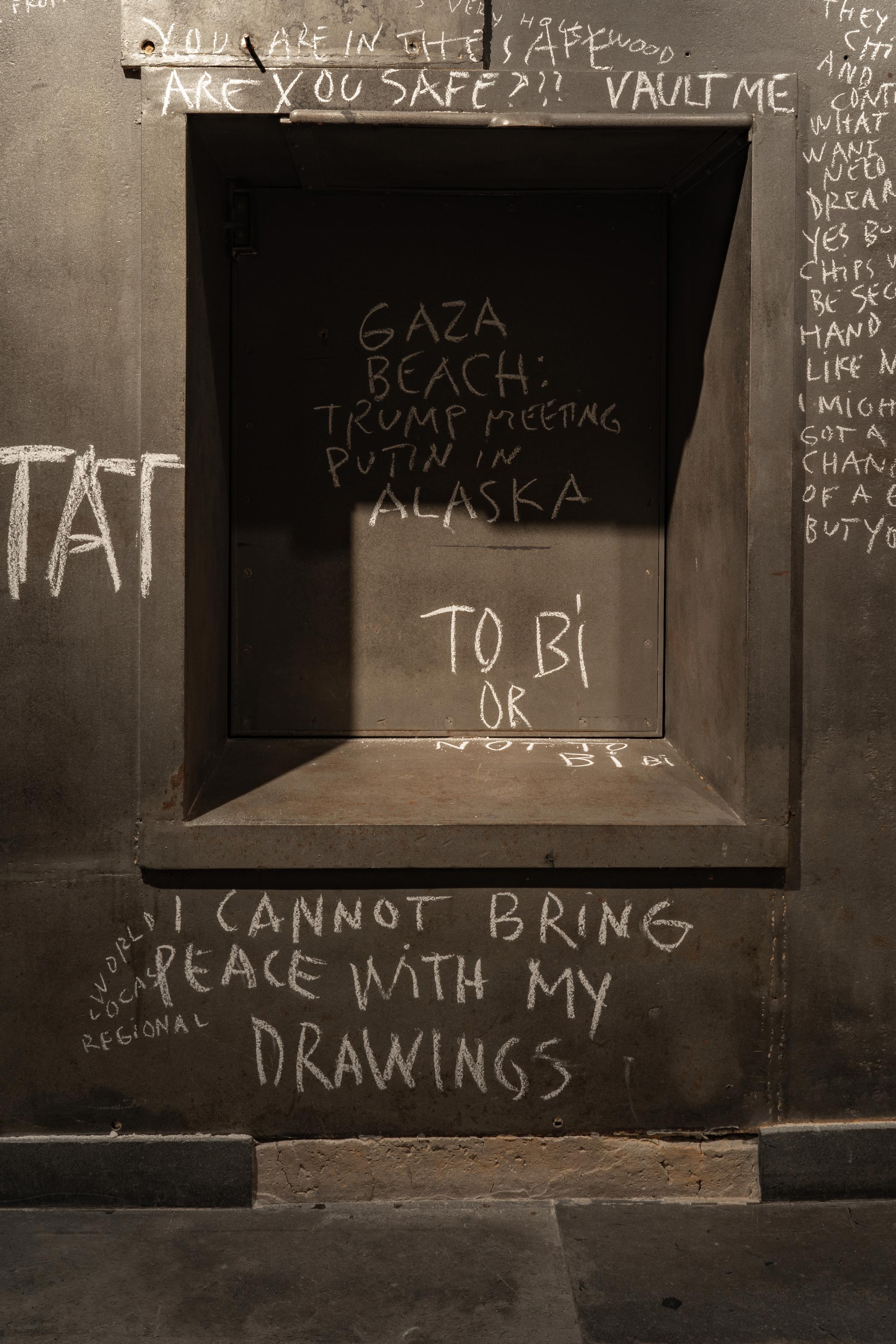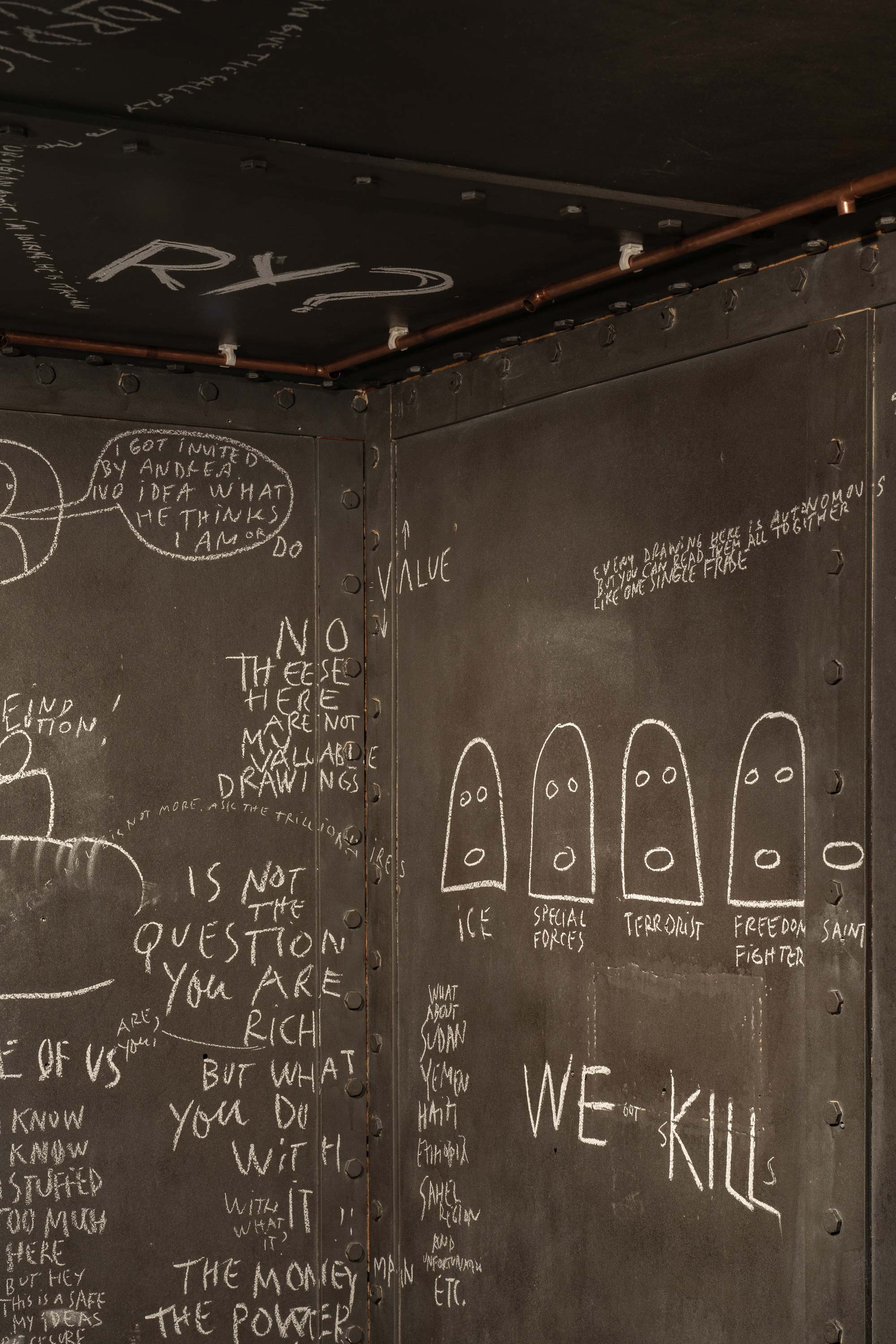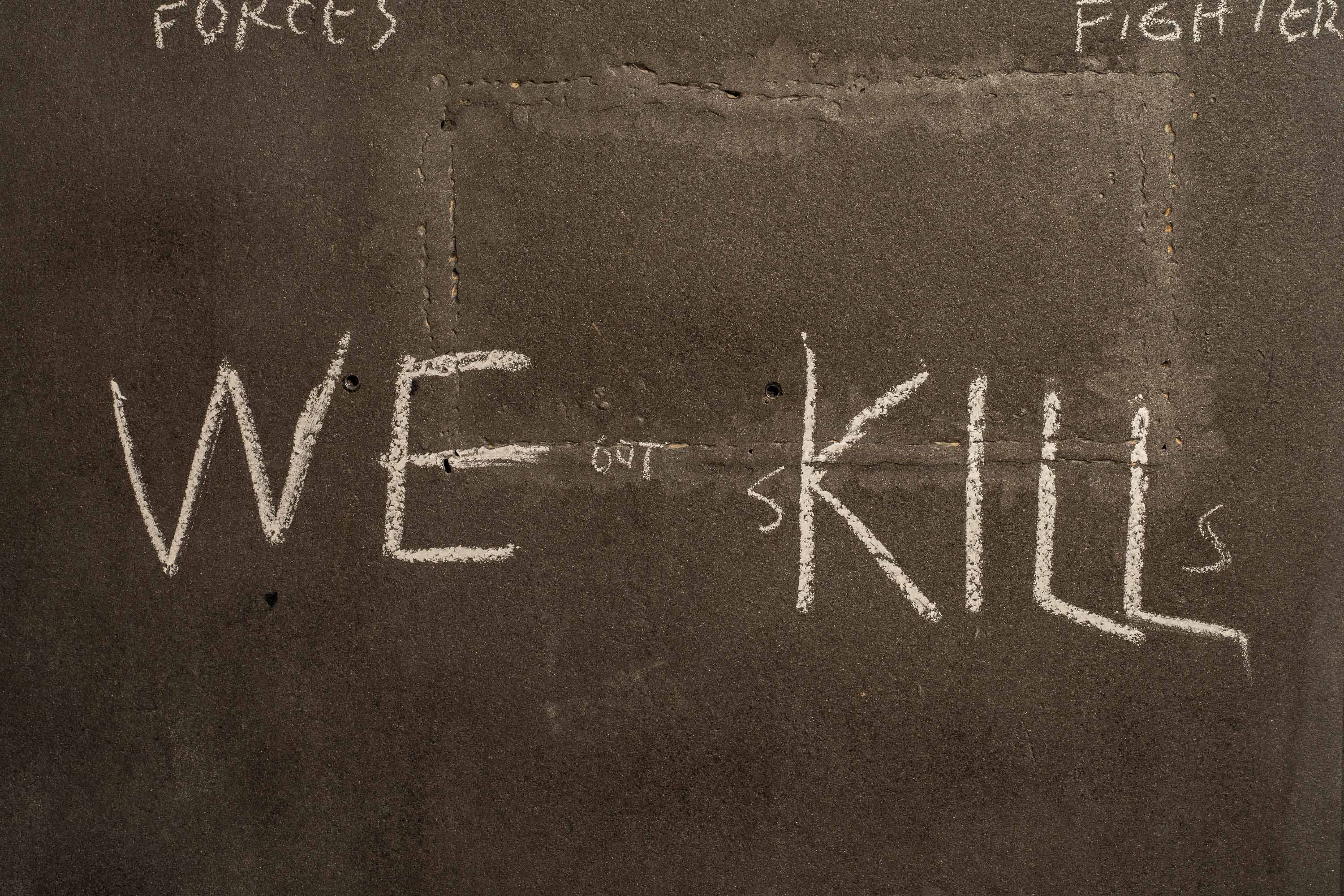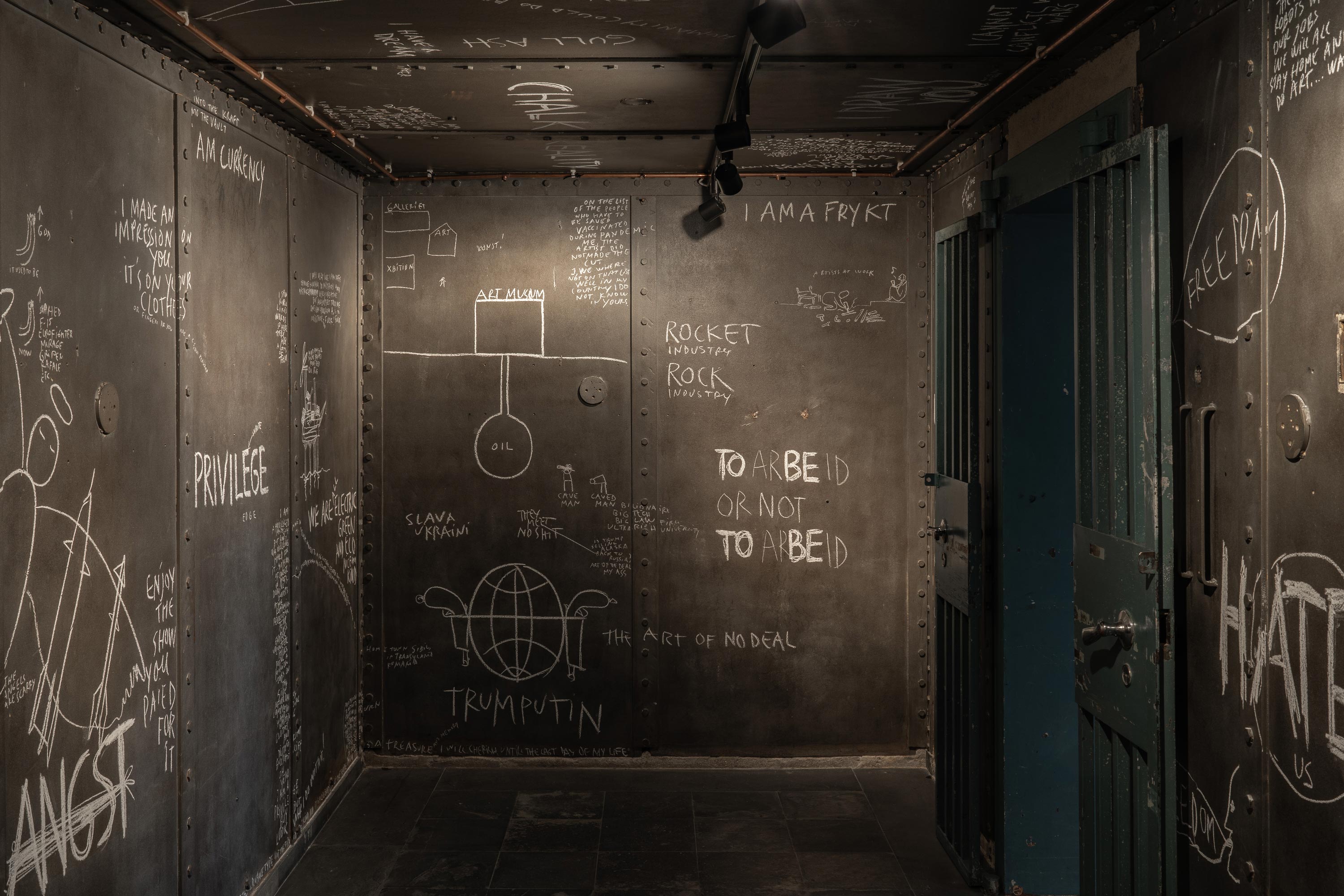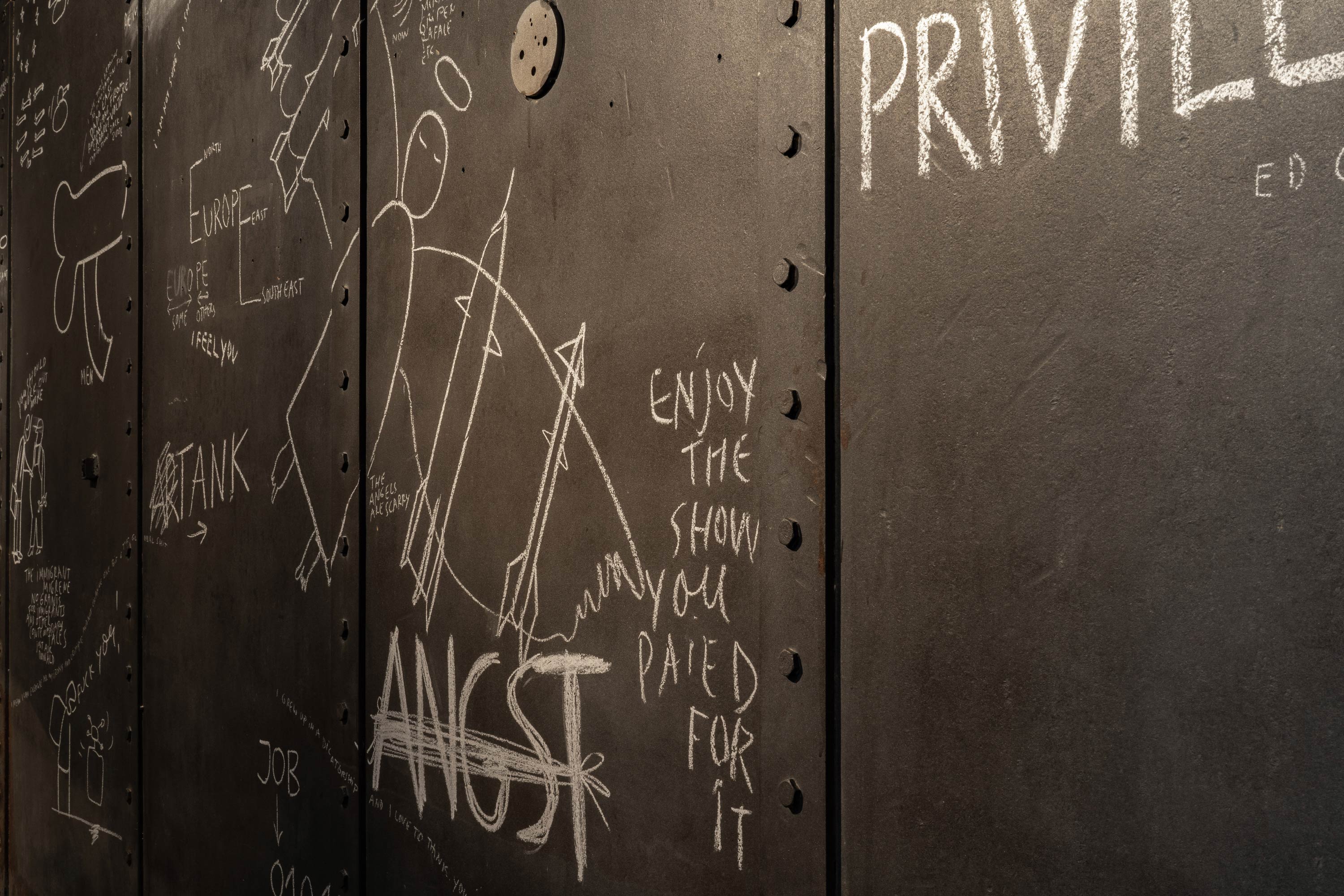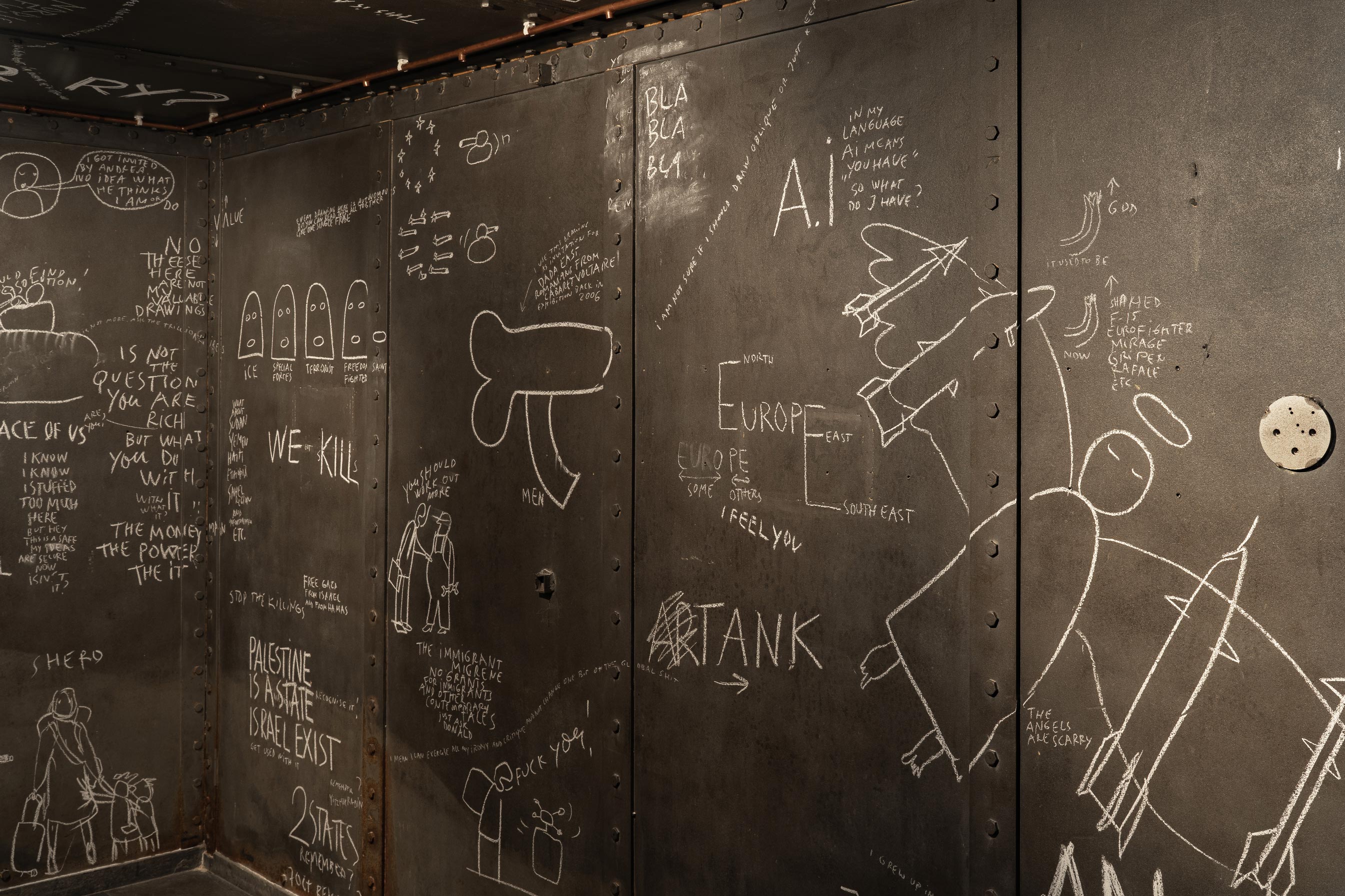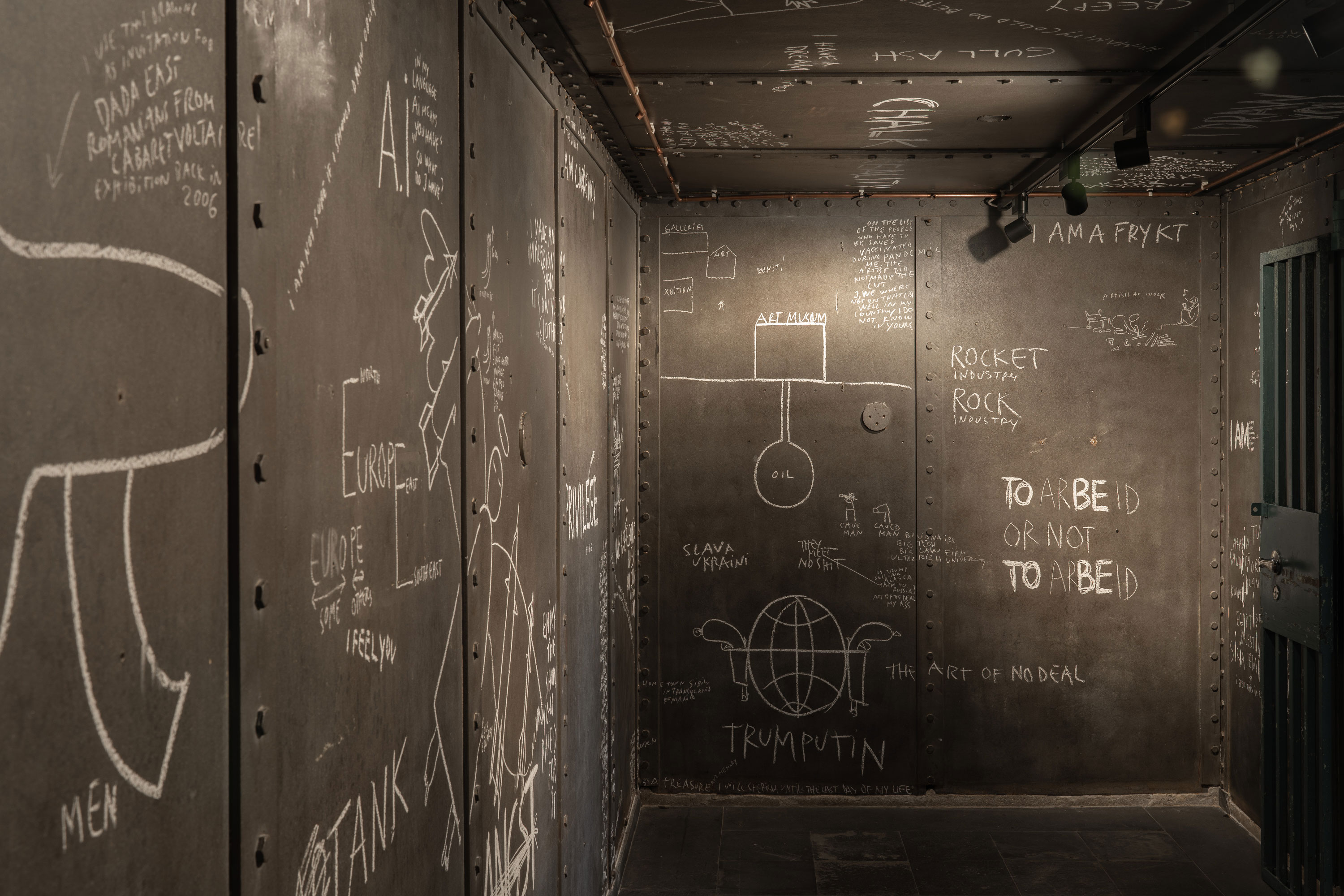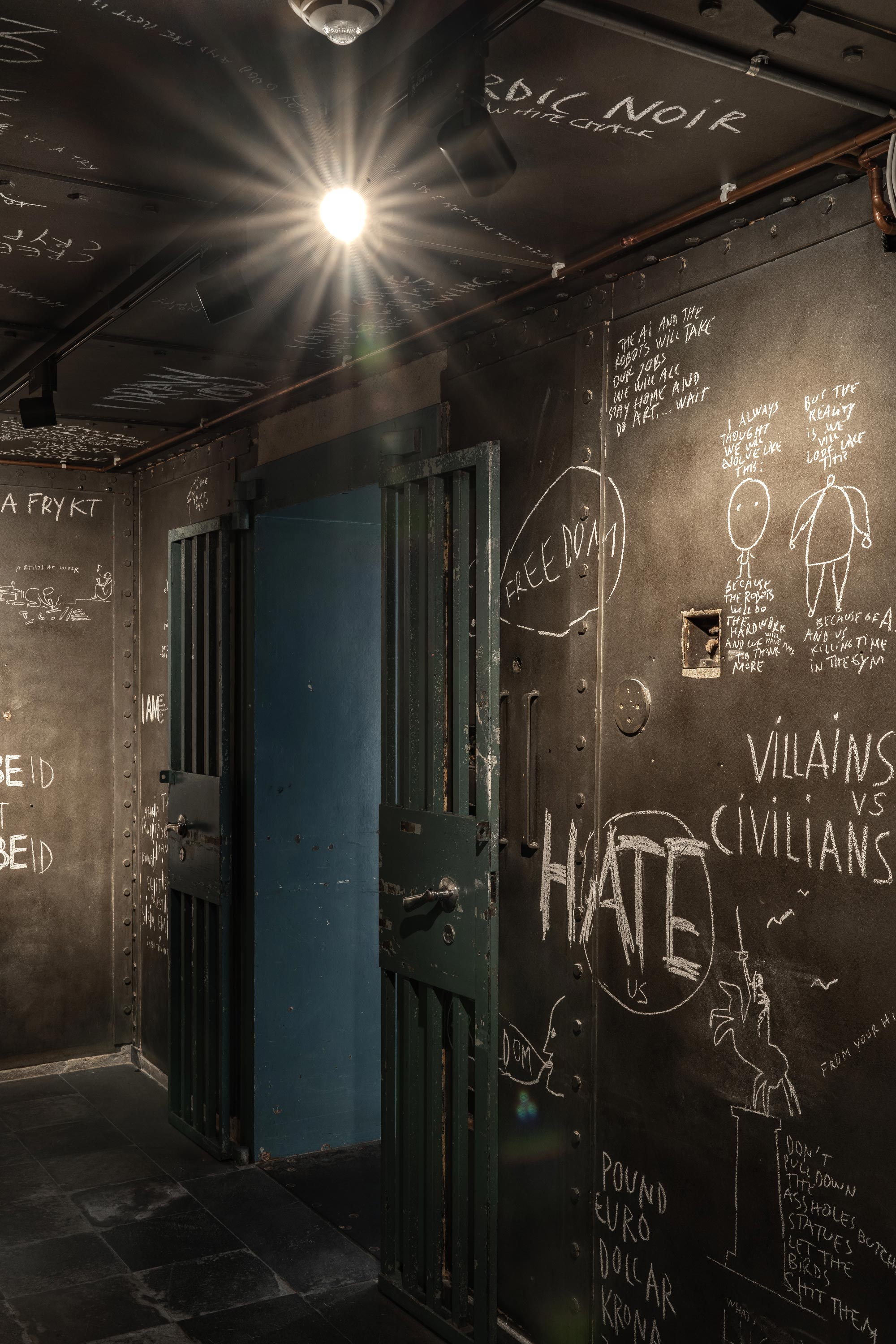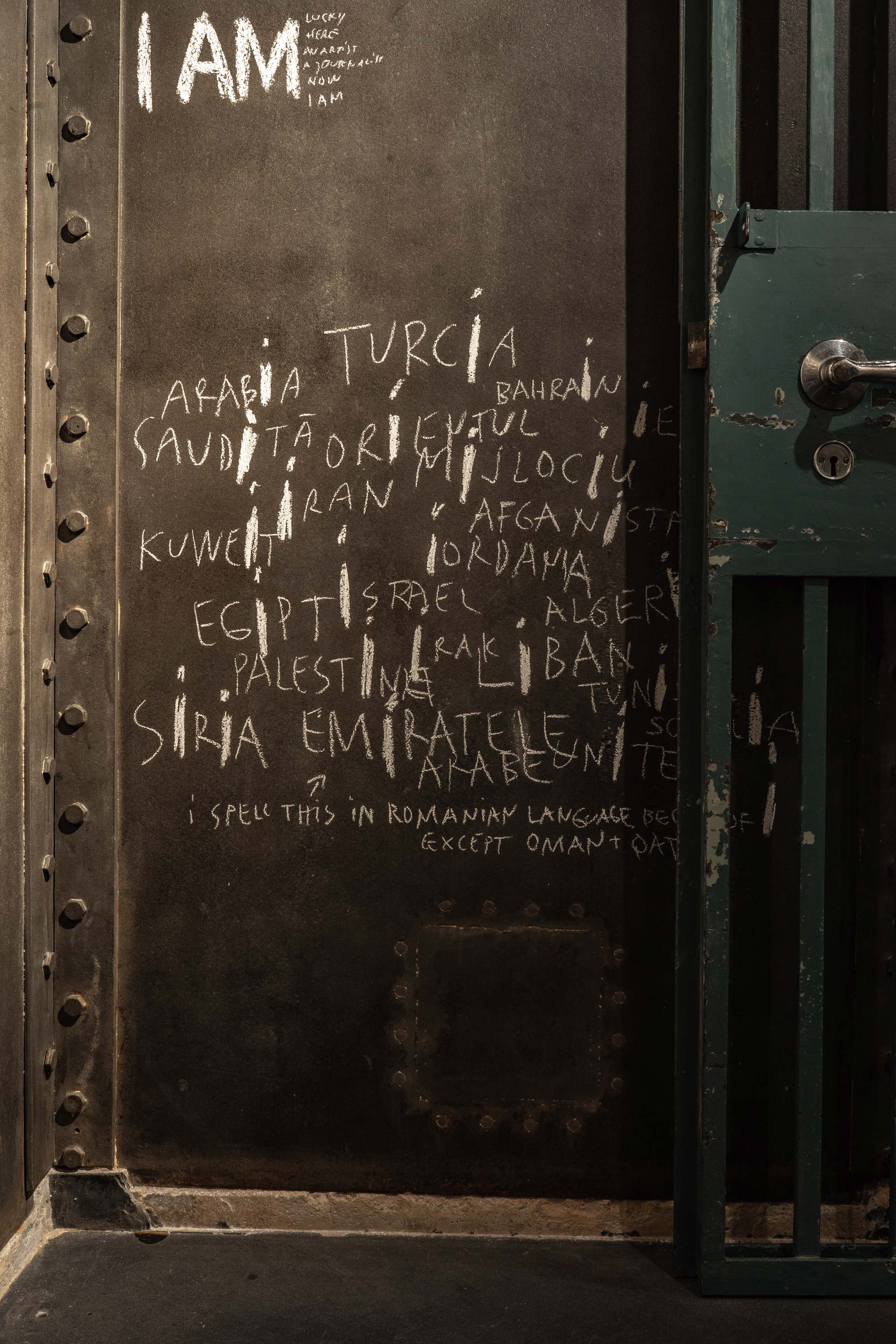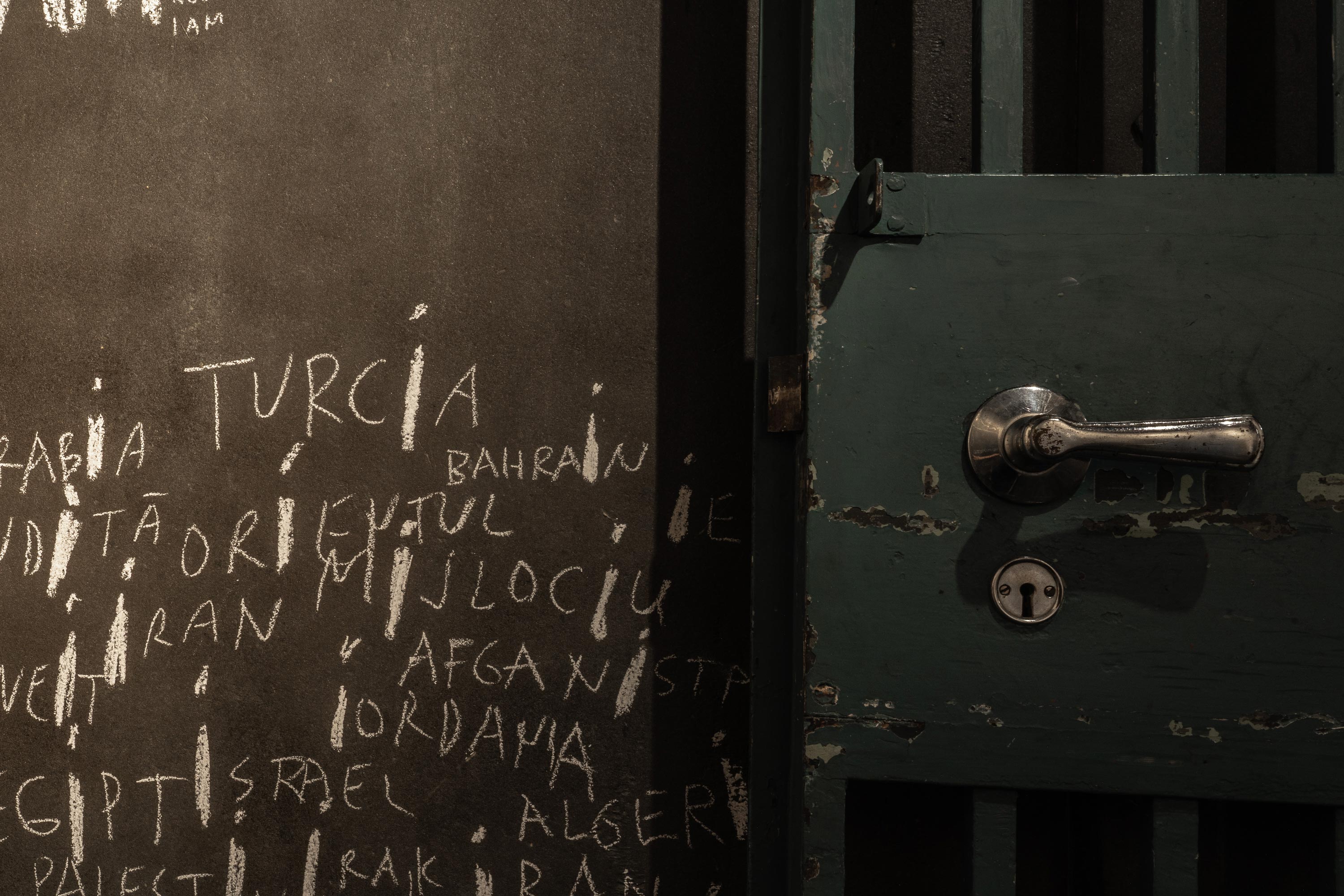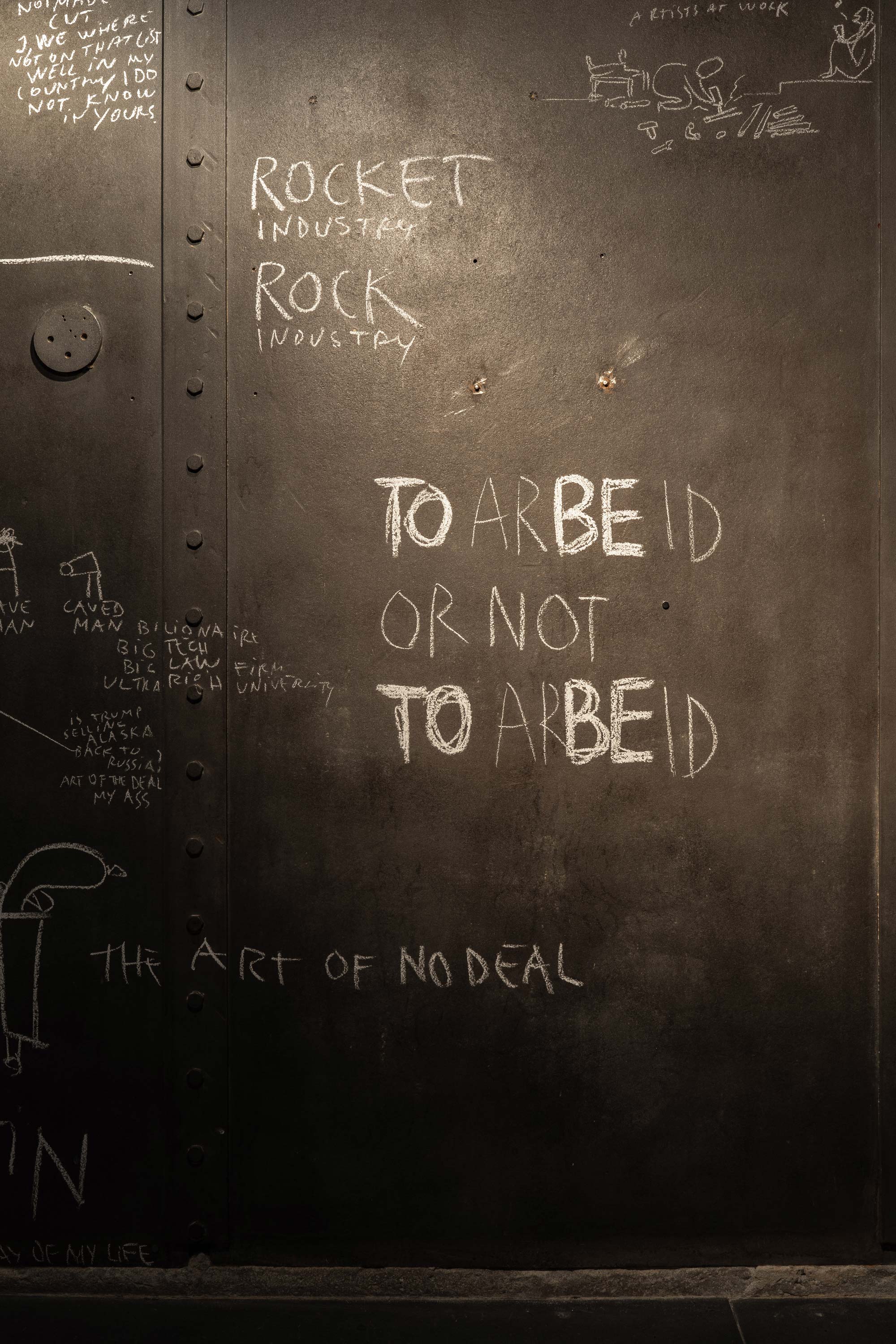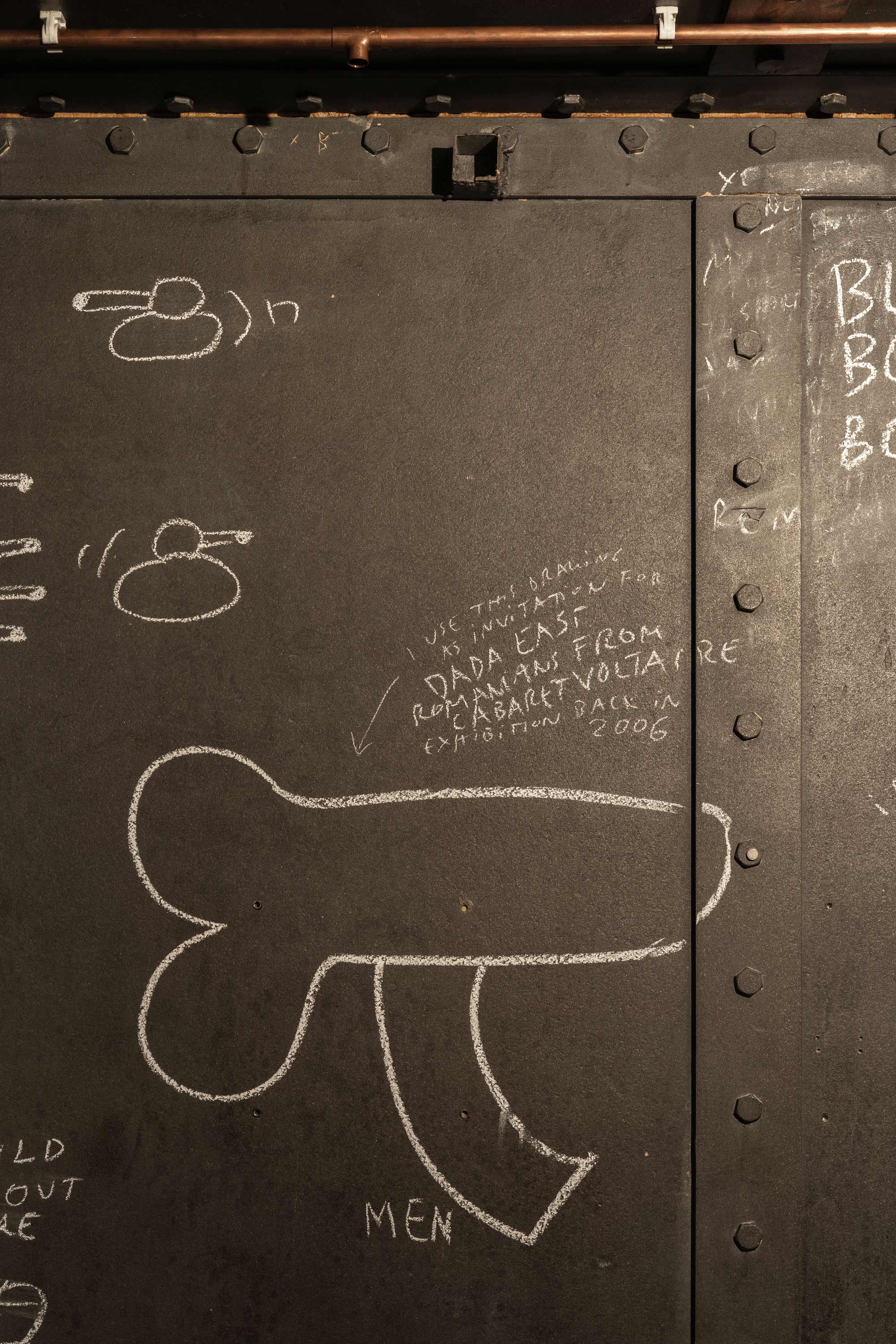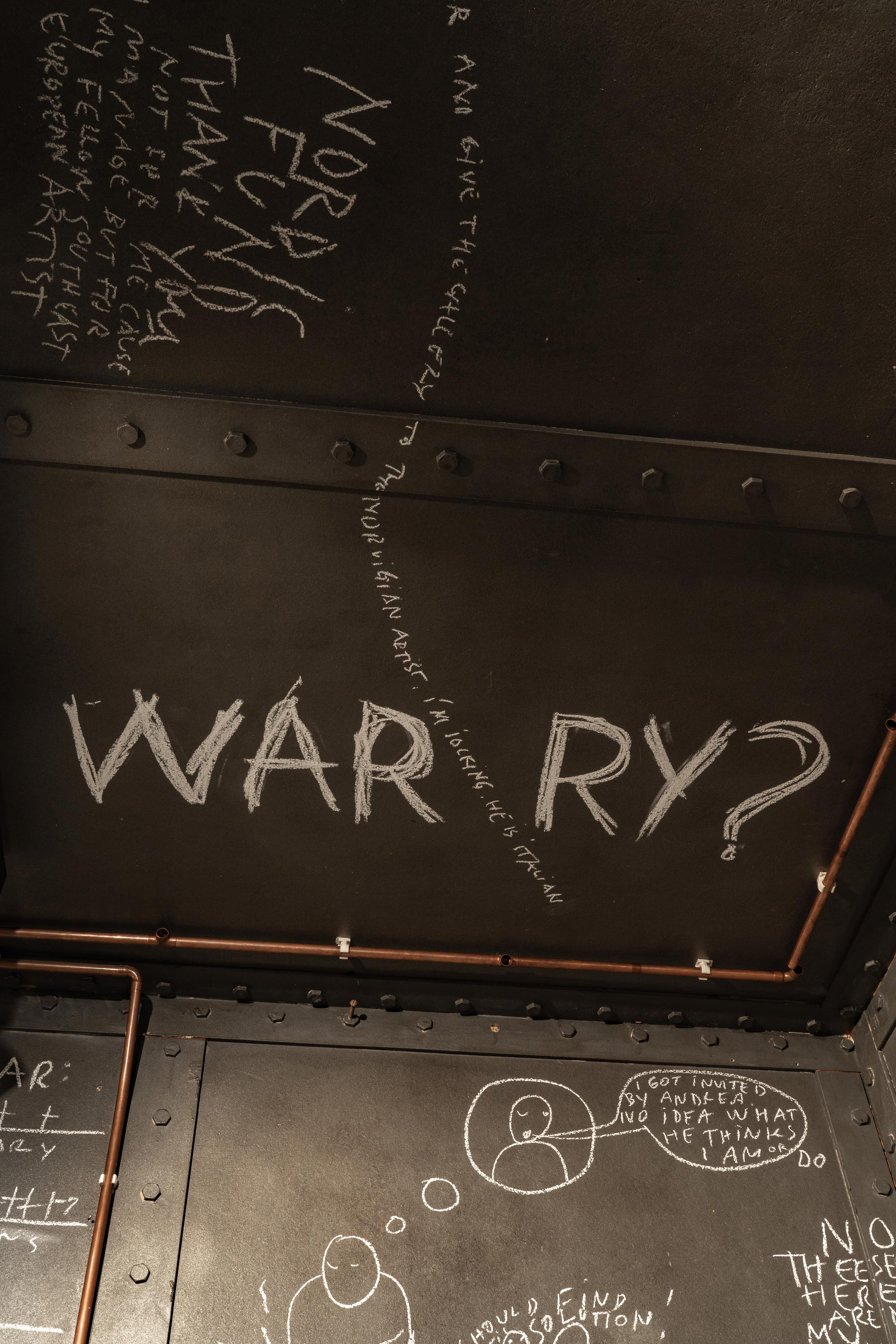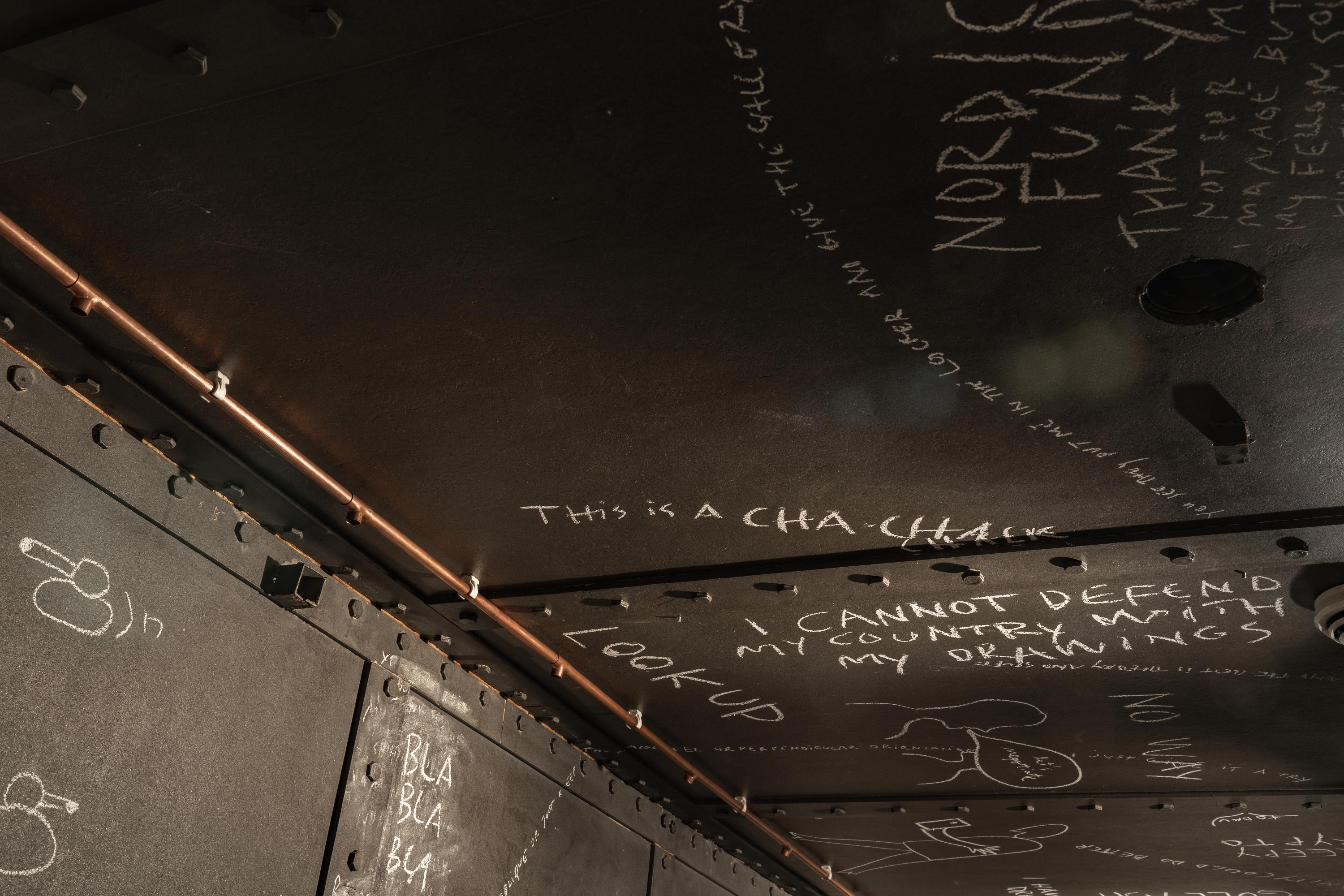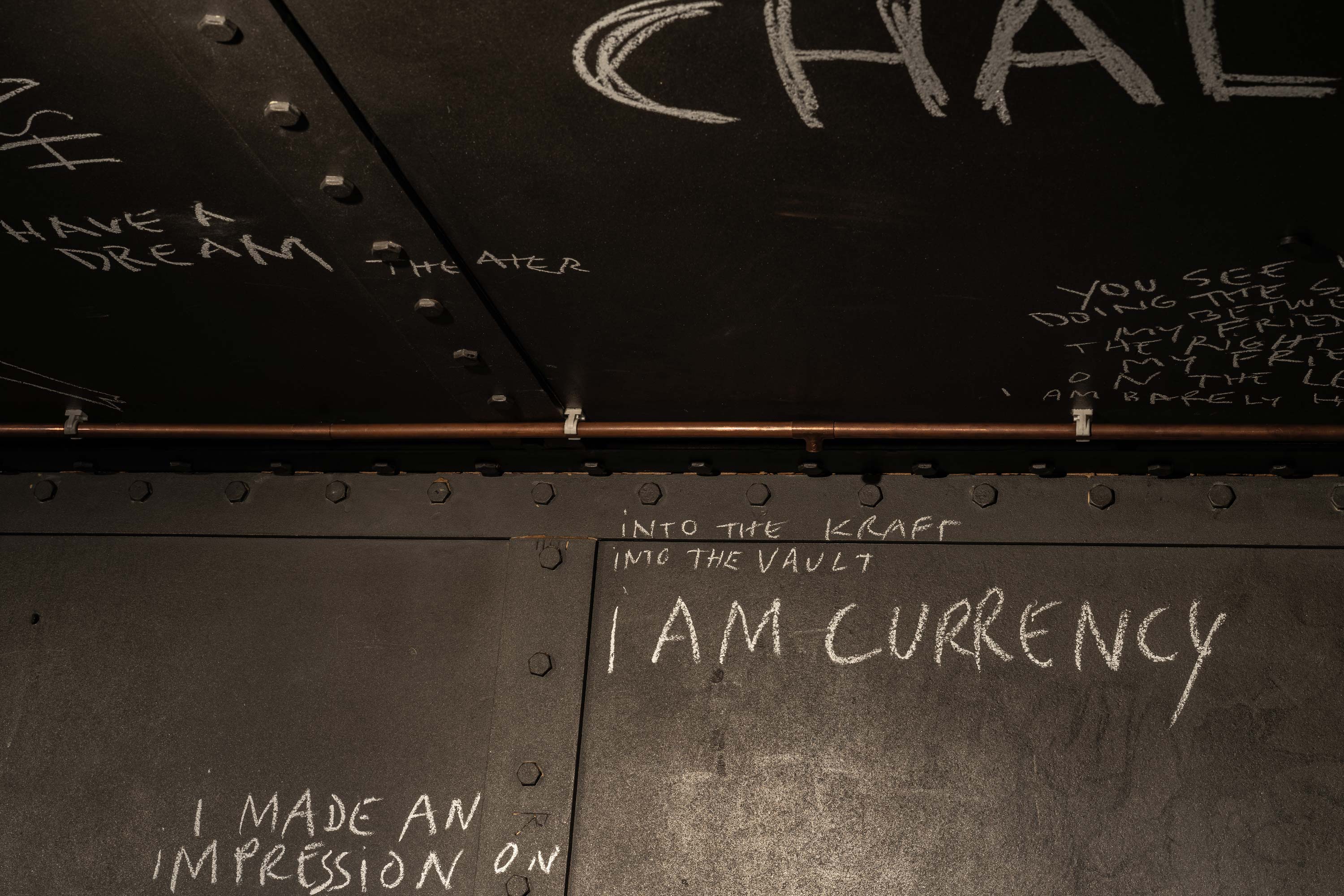Wassily Chair Replicas Society and Some Drawings on the Side, 2025
Duo exhibition in collaboration with Dan Perjovschi, at Kraft Bergen. Series of ten Wassily chair replicas, wall hangings, ornamental plants, and wall drawings. Galvanised steel, wool, markers and chalk on wall. Chairs: 75 x 83,2 x 73 cm each, wall hangings: 150 x 150 cm and 20 elements 32 x 32 cm each, wall drawings: various dimensions.

Wassily Chair Replicas Society is a semi-fictional learned society celebrating the 100th anniversary of the iconic Model B3 Chair, also known as Wassily Chair, designed by Marcel Breuer in 1925-1926 while he was the head of the cabinet-making workshop at the Bauhaus. The exhibition space is turned into a temporary headquarters, furnished with ornamental plants and ten replicas of the Wassily chair, assembled with steel construction pipes and clamps. Each chair is upholstered with textiles woven at a local mill, inscribed with texts built upon a body of notes developed in previous projects. A wall-hanging piece with the chair’s construction plans offers measurements and instructions for possible additional replicas. I invited Romanian artist Dan Perjovschi to respond to the project with a series of wall drawings.
The work reflects on the present historical moment, interrogating failures, limitations, and unresolved contradictions of the ideas, principles, and aesthetics circulating at the Bauhaus. For instance, if the school aimed to democratise access to well-designed objects, encouraging students to explore the opportunities offered by rapidly developing industrial processes, we now see the repercussions of unrestrained industrial development; from the current environmental crises to the loss of small businesses, jobs, skills, and knowledge. Meanwhile, the integration of art and society is perversely accomplished in the current phase of late capitalism. When we are all expected to be always flexible and available, care work, reproductive work and life circumstances are a burden on the shoulders of the worker, if not an occasion of exploitation. The icing on the cake, many countries in the global north see a resurgence of reactionary policies, in a socio-economic context that presents sinister similarities with Interwar Germany.
The project tackles the practical and ethical implications of the production of cultural value in the (re)current context of ubiquitous societal violence, producing discourse around the historical, social and economic circumstances in which production takes place.
The work reflects on the present historical moment, interrogating failures, limitations, and unresolved contradictions of the ideas, principles, and aesthetics circulating at the Bauhaus. For instance, if the school aimed to democratise access to well-designed objects, encouraging students to explore the opportunities offered by rapidly developing industrial processes, we now see the repercussions of unrestrained industrial development; from the current environmental crises to the loss of small businesses, jobs, skills, and knowledge. Meanwhile, the integration of art and society is perversely accomplished in the current phase of late capitalism. When we are all expected to be always flexible and available, care work, reproductive work and life circumstances are a burden on the shoulders of the worker, if not an occasion of exploitation. The icing on the cake, many countries in the global north see a resurgence of reactionary policies, in a socio-economic context that presents sinister similarities with Interwar Germany.
The project tackles the practical and ethical implications of the production of cultural value in the (re)current context of ubiquitous societal violence, producing discourse around the historical, social and economic circumstances in which production takes place.



